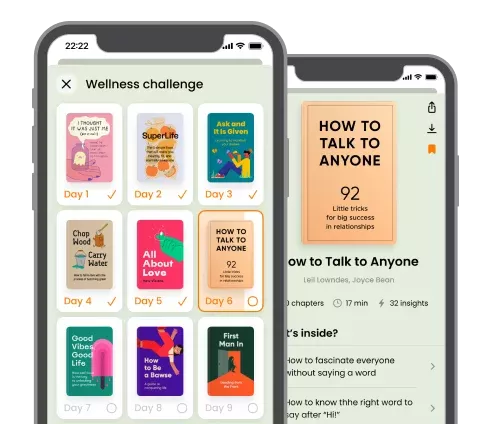62 Best History Books
History studies past events, people, and societies, providing valuable insights into the present and shaping the future. Our list of the top history books offers a deep dive into various periods, cultures, and significant historical figures. By exploring these books, readers can gain a comprehensive understanding of key historical events and their impact on society.
Explore our curated list of history books to discover unique insights, fresh perspectives, and compelling narratives to deepen your understanding of the past. These handpicked reads offer thought-provoking content to expand your knowledge and sharpen your historical awareness. Reading with these works gives you a broader view of history and its impact on the present. Whether you're a seasoned enthusiast or new to the subject, these books will enrich your perspective and enhance your appreciation of history.
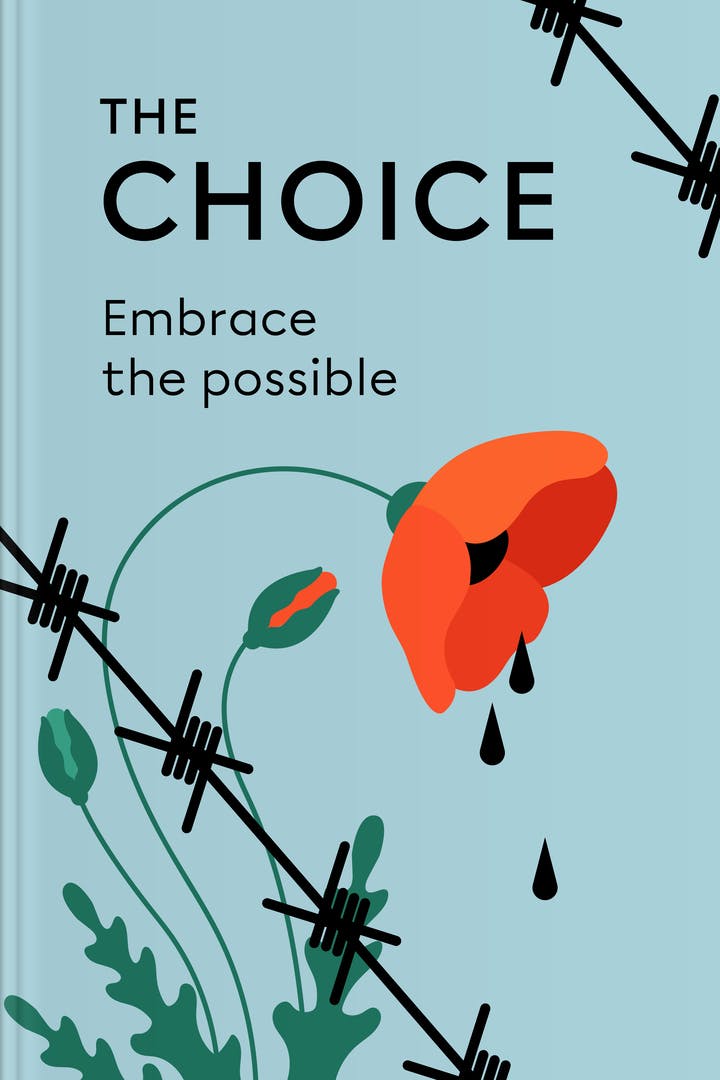 1
1The Choice
by Dr. Edith Eva Eger
What is The Choice about?
"The Choice: Embrace The Possible" is a powerful memoir that delves into the extraordinary life of Dr. Edith Eva Eger. Through her personal experiences as a Holocaust survivor, psychologist, and healer, Eger explores the profound impact of trauma and the transformative power of choice. With resilience and wisdom, she shares her journey of self-discovery, offering invaluable lessons on finding freedom, healing, and embracing the limitless possibilities that life has to offer.
Who should read The Choice
Individuals seeking inspiration and guidance to overcome life's challenges.
Survivors of trauma and those in need of healing.
Anyone interested in the power of resilience and personal growth.
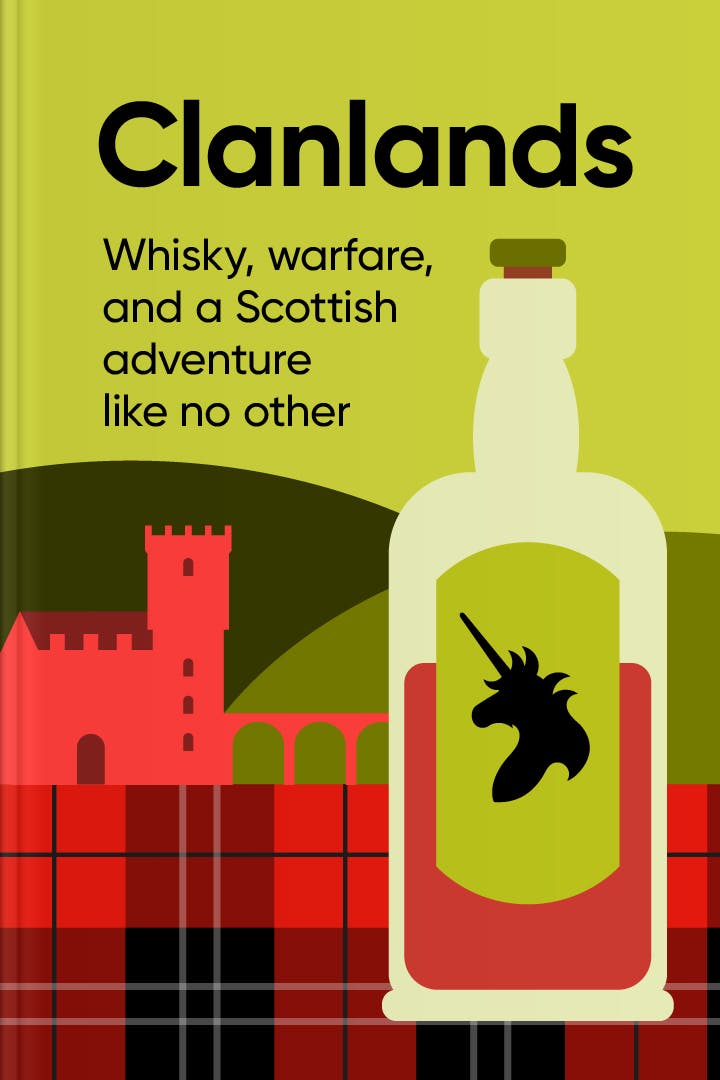 2
2Clanlands
by Sam Heughan, Graham McTavish
What is Clanlands about?
"Clanlands" takes readers on an exhilarating journey through the heart of Scotland, as two charismatic actors embark on a quest to explore their ancestral roots. Sam Heughan and Graham McTavish delve into the rich history, culture, and traditions of their homeland, while bonding over their shared love for whisky. With humor, wit, and a dash of adventure, this book offers a captivating glimpse into the captivating world of Scotland.
Who should read Clanlands
Fans of the TV series "Outlander" seeking an immersive Scottish experience.
Whisky enthusiasts eager to explore Scotland's rich distilling heritage.
History buffs intrigued by tales of Scottish warfare and adventure.
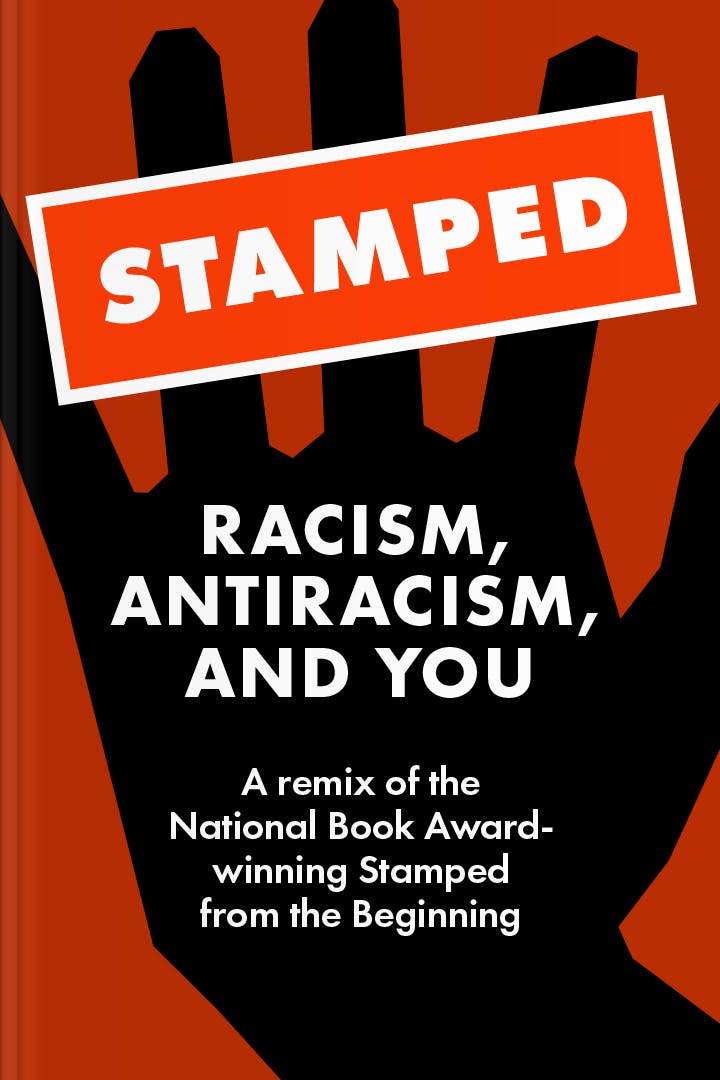 3
3Stamped
by Jason Reynolds, Ibram X. Kendi
What is Stamped about?
"Stamped: Racism, Antiracism, and You" is a powerful and enlightening book that delves into the history of racism in America. Written by Jason Reynolds and Ibram X. Kendi, this eye-opening exploration reveals how racist ideas have been perpetuated throughout history and provides readers with the tools to recognize and combat racism in their own lives. With a compelling narrative and thought-provoking analysis, this book is a must-read for anyone seeking to understand and dismantle systemic racism.
Who should read Stamped
Young adults seeking to understand the history and impact of racism.
Educators looking for resources to teach about racial justice.
Individuals interested in promoting antiracism and social equality.
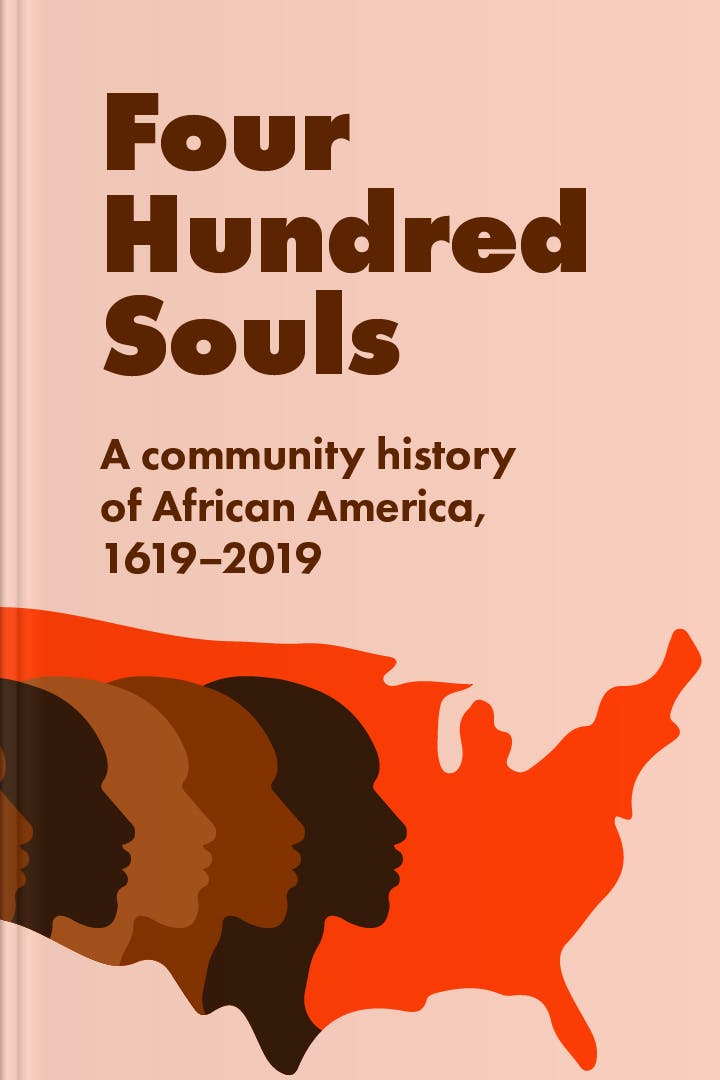 4
4Four Hundred Souls
by Ibram X. Kendi and Keisha N. Blain
What is Four Hundred Souls about?
"Four Hundred Souls" is a comprehensive community history that spans four centuries of African American experiences, from 1619 to 2019. Written by Ibram X. Kendi and Keisha N. Blain, this book brings together 90 different writers who each contribute a unique essay, creating a collective narrative that explores the struggles, triumphs, and contributions of African Americans throughout American history. It offers a powerful and enlightening perspective on the African American community's journey towards freedom, equality, and justice.
Who should read Four Hundred Souls
History enthusiasts seeking a comprehensive account of African American experiences.
Students and scholars studying the evolution of African American communities.
Individuals interested in understanding the collective resilience and triumphs of African Americans.
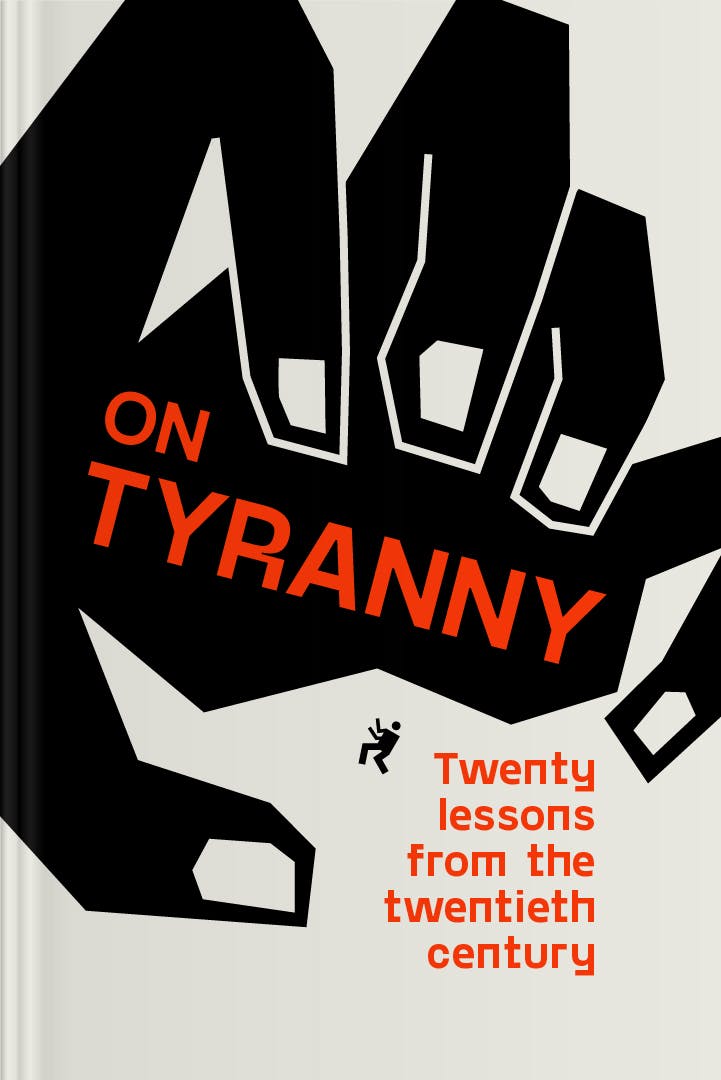 5
5On Tyranny
by Timothy Snyder
What is On Tyranny about?
In this thought-provoking book, a renowned historian draws parallels between the rise of authoritarian regimes in the past and the present, offering twenty invaluable lessons to safeguard democracy. Timothy Snyder's insightful analysis explores the dangers of complacency, the importance of truth, and the power of individual actions in resisting tyranny. With a compelling blend of historical examples and contemporary relevance, this book serves as a timely guide to protect democratic values in an increasingly uncertain world.
Who should read On Tyranny
History enthusiasts seeking to understand the dangers of authoritarianism.
Citizens concerned about preserving democracy and preventing tyranny.
Students studying political science and modern world history.
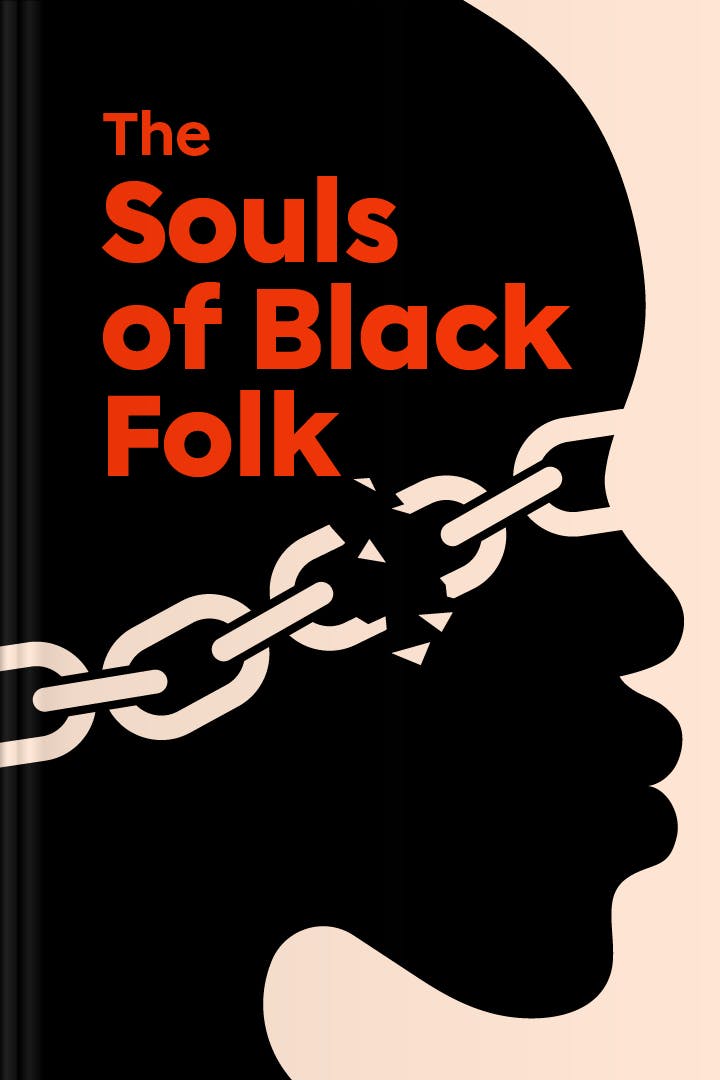 6
6The Souls of Black Folk
by W.E.B. Du Bois
What is The Souls of Black Folk about?
"The Souls of Black Folk" is a powerful and thought-provoking book that delves into the experiences and struggles of African Americans in the United States. Written by a prominent African American author, it explores themes of racial identity, discrimination, and the quest for equality. Through a combination of personal narratives, historical analysis, and sociological insights, the book sheds light on the complex realities faced by black individuals in a racially divided society.
Who should read The Souls of Black Folk
Scholars and academics studying African American history and sociology.
Individuals interested in understanding the experiences and struggles of African Americans.
Activists and advocates working towards racial equality and social justice.
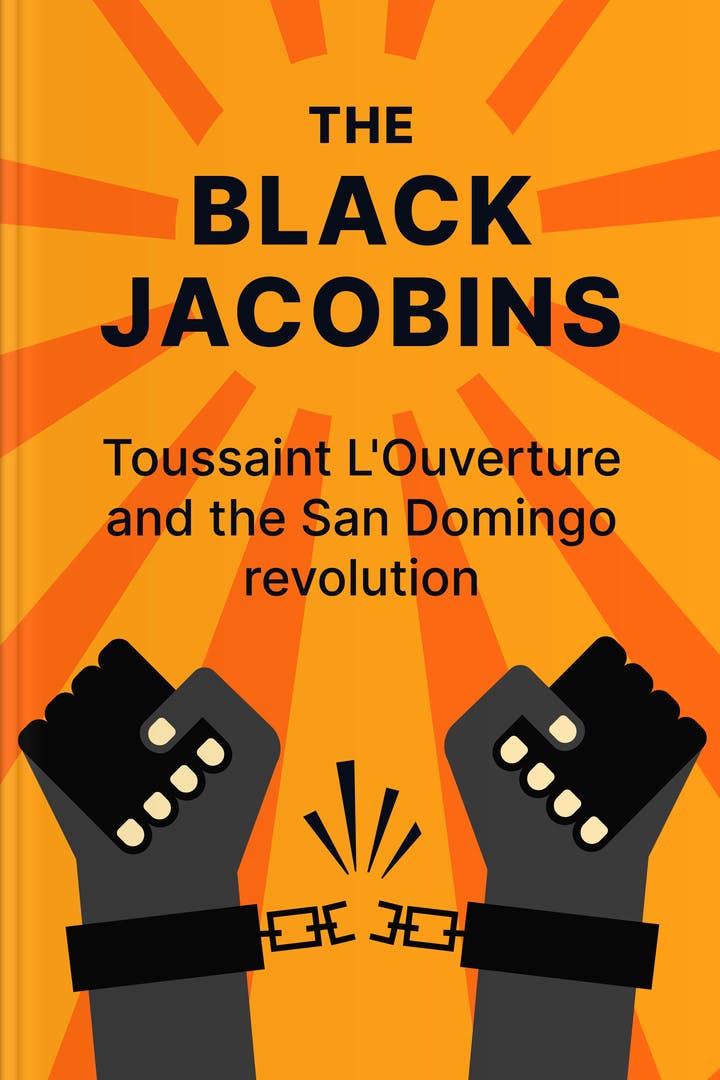 7
7The Black Jacobins
by C.L.R. James
What is The Black Jacobins about?
"The Black Jacobins" by C.L.R. James is a historical account that delves into the San Domingo Revolution led by Toussaint L’Ouverture. This gripping narrative explores the struggle for freedom and equality in the French colony of Saint-Domingue, which eventually led to the establishment of Haiti as the first independent black republic. James vividly portrays the complex political and social dynamics of the revolution, shedding light on the remarkable achievements and challenges faced by the revolutionaries.
Who should read The Black Jacobins
Historians and scholars interested in the Haitian Revolution.
Students studying Caribbean history and colonialism.
Activists seeking inspiration from successful anti-colonial revolutions.
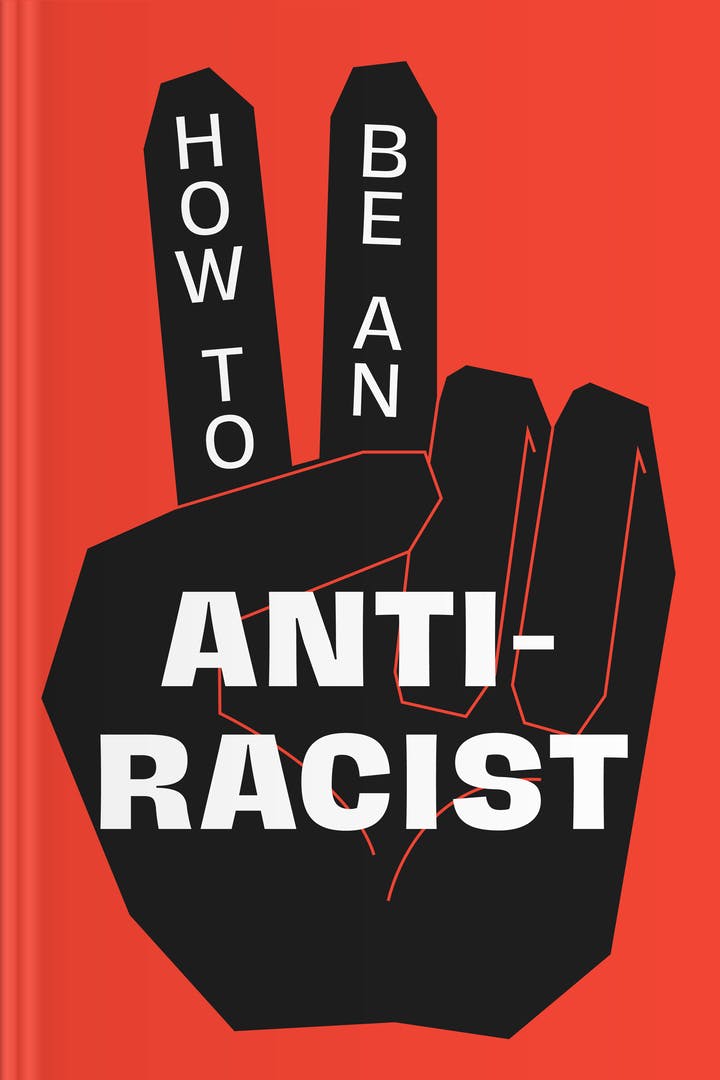 8
8How to be an Antiracist
by Ibram X. Kendi
What is How to be an Antiracist about?
In this thought-provoking book, the author delves into the complex issue of racism and offers a guide on how to actively combat it. Through personal anecdotes and historical analysis, Kendi challenges readers to examine their own biases and actively work towards creating a more equitable society. With a focus on self-reflection and education, this book serves as a powerful tool for individuals seeking to become antiracist and contribute to lasting social change.
Who should read How to be an Antiracist
Individuals seeking to understand and challenge their own racial biases.
Educators and activists committed to promoting racial equity and justice.
Anyone interested in dismantling systemic racism and fostering inclusivity.
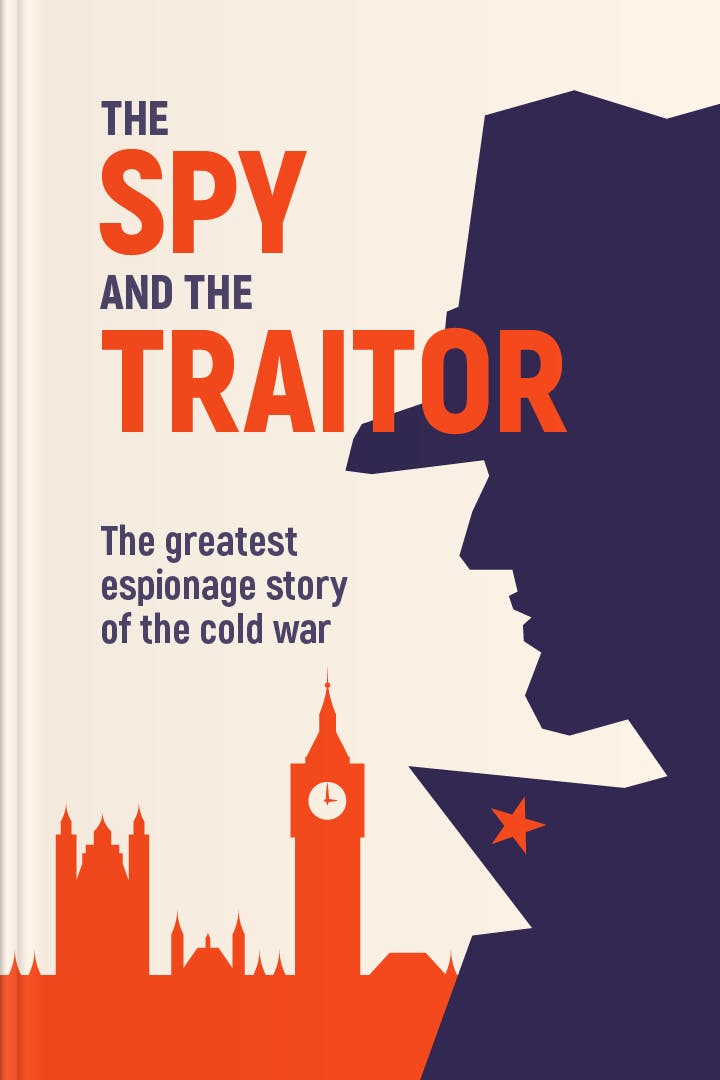 9
9The Spy and the Traitor
by Ben Macintyre
What is The Spy and the Traitor about?
In this gripping non-fiction narrative, the author delves into the thrilling true story of a high-ranking KGB officer who becomes a double agent for the British intelligence agency, MI6, during the height of the Cold War. Filled with suspense and intrigue, the book explores the dangerous world of espionage, highlighting the risks and sacrifices made by the spy to protect his country and the secrets he uncovers along the way.
Who should read The Spy and the Traitor
History enthusiasts interested in Cold War espionage and true stories.
Fans of thrilling spy narratives and real-life espionage accounts.
Individuals curious about the hidden world of double agents.
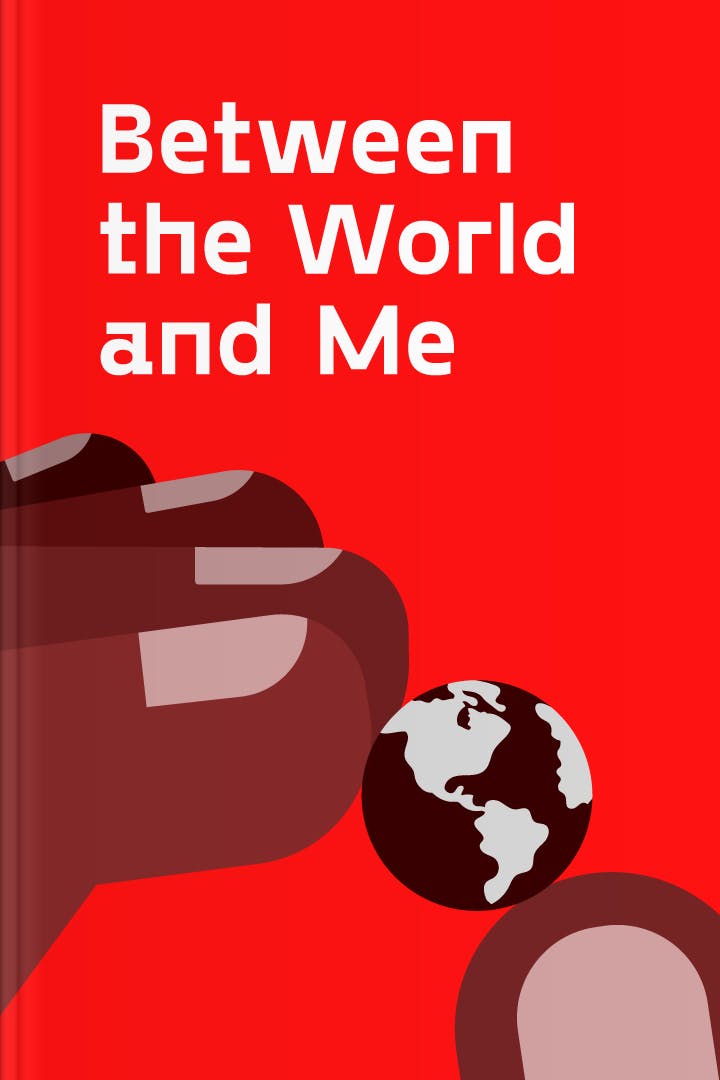 10
10Between the World and Me
by Ta-Nehisi Coates
What is Between the World and Me about?
"Between the World and Me" is a powerful and thought-provoking book that delves into the experiences of the author as he navigates the complexities of being a Black man in America. Through a series of heartfelt letters to his teenage son, the author explores themes of race, identity, and the harsh realities of systemic racism. Coates offers a raw and honest perspective, challenging readers to confront the deep-rooted issues that continue to plague society.
Who should read Between the World and Me
Individuals seeking to understand the experiences of Black Americans.
Educators and students studying race and social justice issues.
Anyone interested in exploring the complexities of American identity.
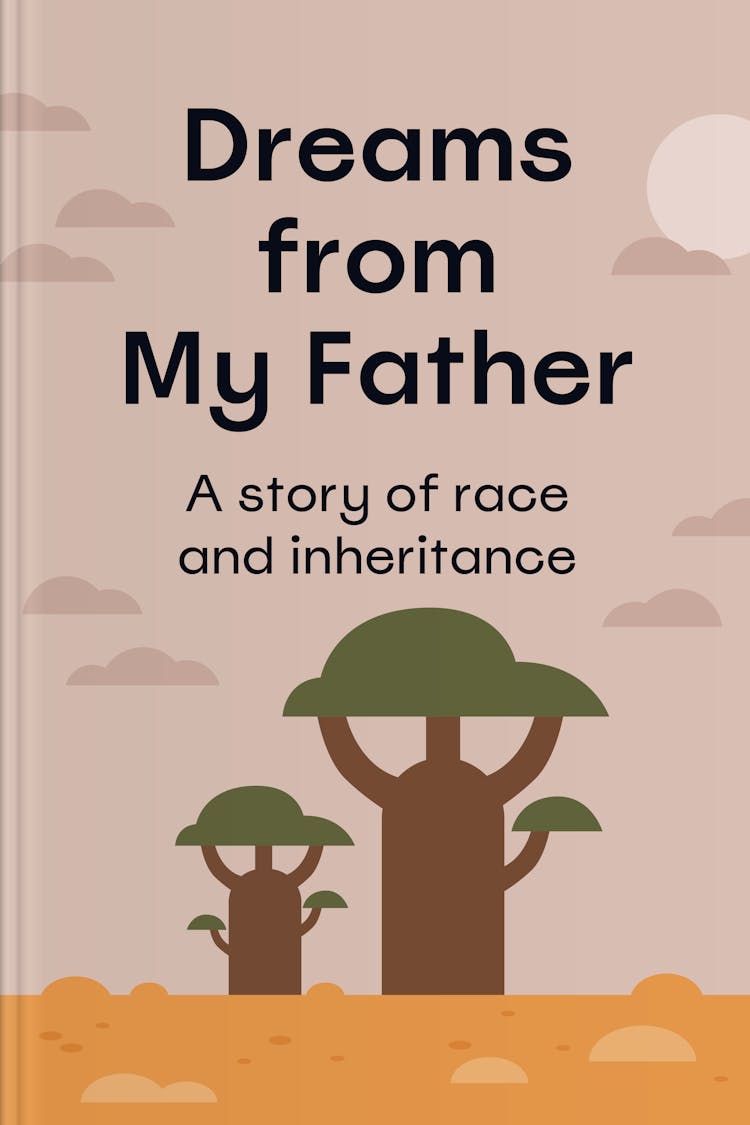 11
11Dreams From My Father
by Barack Obama
What is Dreams From My Father about?
"Dreams From My Father" is a captivating memoir that delves into the personal journey of a young man searching for his identity and purpose. Written by a prominent figure in American politics, this book explores the complexities of race, family, and heritage. Through vivid storytelling, the author reflects on his multicultural upbringing, his struggles with racial identity, and the profound impact his father had on his life. This poignant narrative offers a unique perspective on the challenges and triumphs of self-discovery.
Who should read Dreams From My Father
Individuals interested in understanding Barack Obama's personal journey and racial identity.
Readers seeking insights into the complexities of race and identity in America.
Those curious about the life experiences that shaped Barack Obama's presidency.
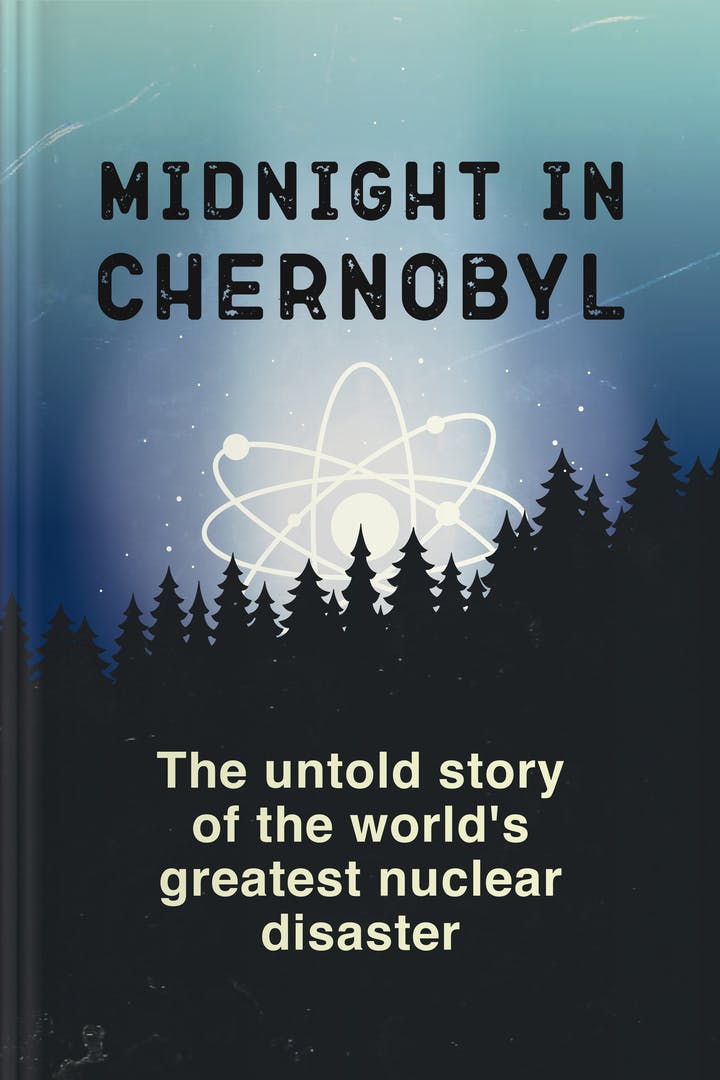 12
12Midnight in Chernobyl
by Adam Higginbotham
What is Midnight in Chernobyl about?
"Midnight in Chernobyl" by Adam Higginbotham is a gripping account of the catastrophic nuclear disaster that occurred in Chernobyl in 1986. Through extensive research and interviews, Higginbotham unveils the untold story behind the event, shedding light on the flawed Soviet system, the heroic efforts of those involved, and the long-lasting consequences of the disaster. This meticulously researched book offers a haunting and comprehensive narrative of one of the world's most devastating nuclear accidents.
Who should read Midnight in Chernobyl
History enthusiasts interested in learning about the Chernobyl disaster.
Environmentalists concerned about the long-term effects of nuclear accidents.
Science and technology enthusiasts curious about the intricacies of nuclear power.
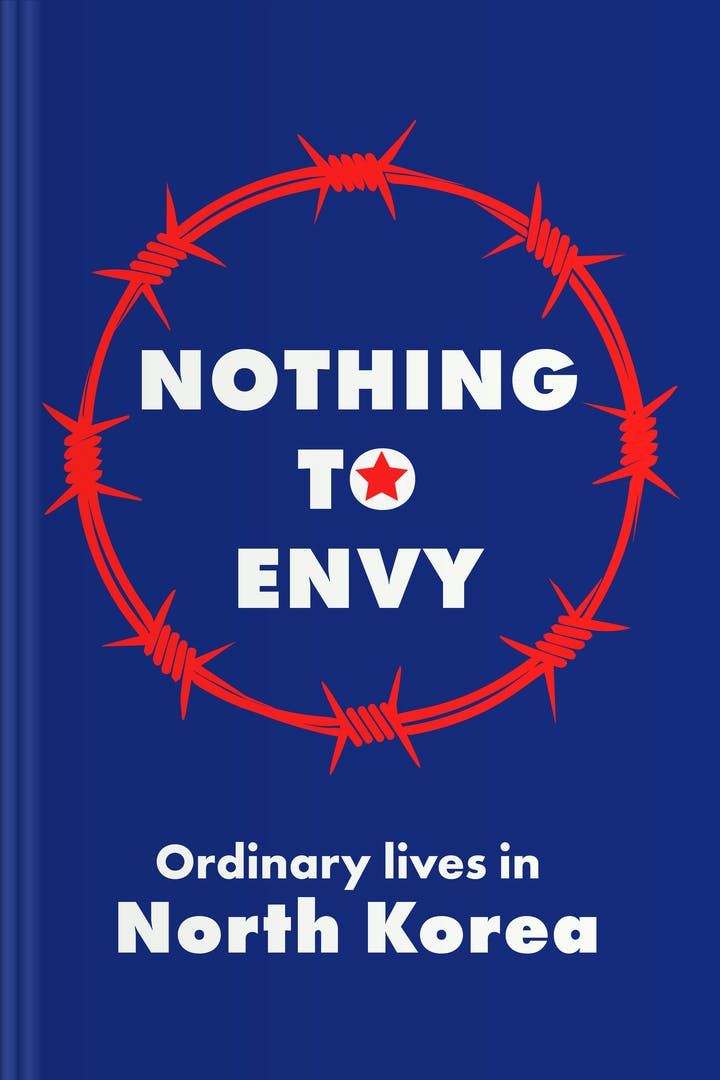 13
13Nothing to Envy
by Barbara Demick
What is Nothing to Envy about?
"Nothing to Envy: Ordinary Lives in North Korea" offers a gripping and eye-opening account of life in one of the world's most secretive and oppressive regimes. Through the personal stories of six North Korean citizens, journalist Barbara Demick unveils the harsh realities of poverty, propaganda, and political control that shape their everyday existence. This powerful narrative sheds light on the resilience and determination of ordinary people living under an authoritarian regime, providing a rare glimpse into a hidden world.
Who should read Nothing to Envy
Individuals interested in gaining insight into the lives of ordinary North Koreans.
History enthusiasts seeking a deeper understanding of North Korea's society.
Those curious about the human stories behind North Korea's political regime.
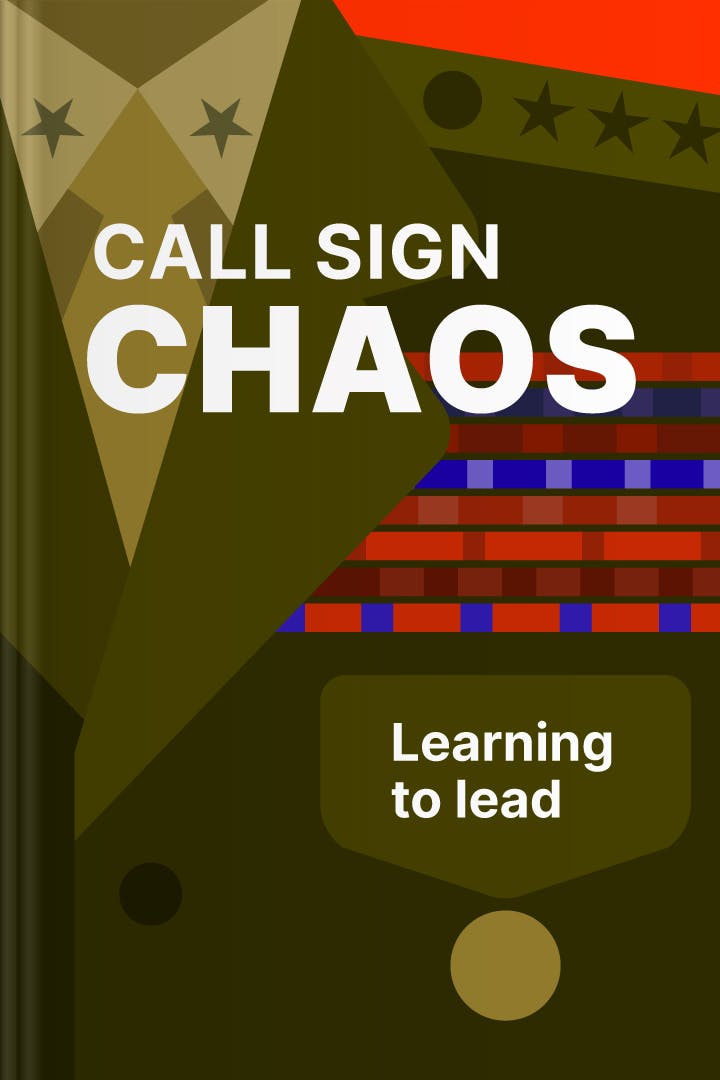 14
14Call Sign Chaos
by Jim Mattis, Bing West
What is Call Sign Chaos about?
"Call Sign Chaos: Learning to Lead" is a captivating memoir that delves into the remarkable journey of a military leader. Written by a renowned author and a former Secretary of Defense, this book offers invaluable insights into the art of leadership and the challenges faced in the military. With vivid anecdotes and personal experiences, it provides a compelling narrative that explores the complexities of decision-making and the importance of adaptability in times of chaos.
Who should read Call Sign Chaos
Military personnel seeking insights on leadership and strategic decision-making.
History enthusiasts interested in the experiences of a renowned general.
Aspiring leaders looking for practical advice on effective leadership.
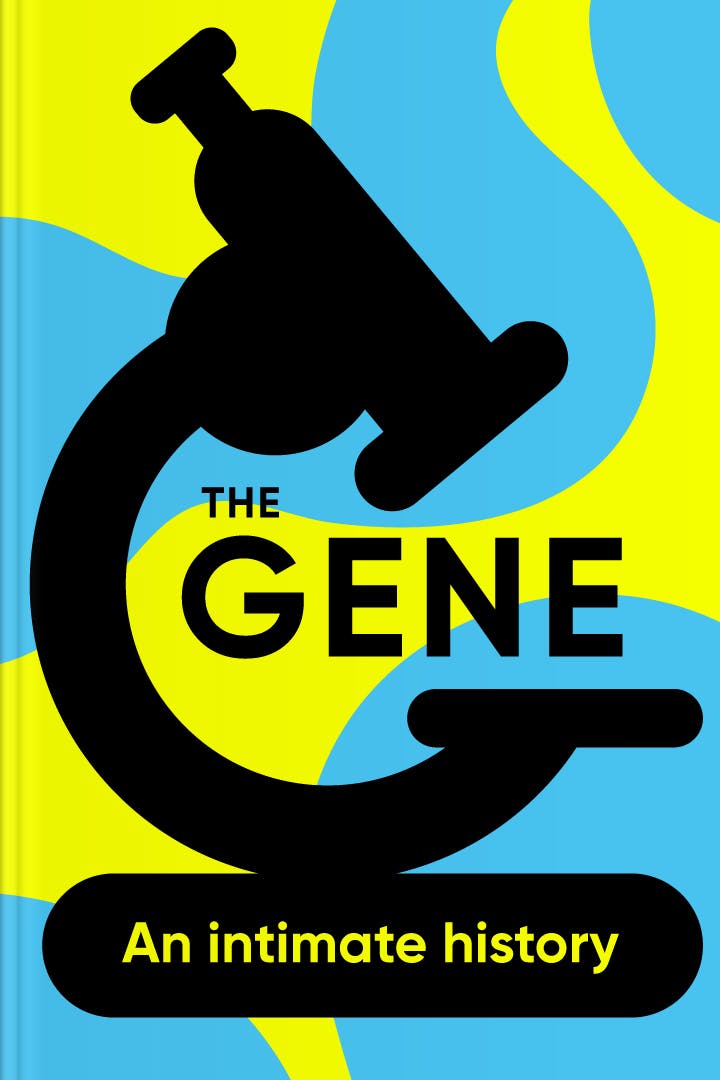 15
15The Gene
by Siddhartha Mukherjee
What is The Gene about?
"The Gene: An Intimate History" delves into the captivating world of genetics, exploring the profound impact genes have on our lives. Siddhartha Mukherjee takes readers on a journey through the history of genetics, from its discovery to the present day. With a blend of scientific expertise and personal anecdotes, Mukherjee unravels the complexities of genes, shedding light on their role in shaping our identities, health, and the future of medicine.
Who should read The Gene
Science enthusiasts seeking a comprehensive exploration of genetics.
Medical professionals looking to deepen their understanding of genetics.
Individuals curious about the impact of genes on human history.
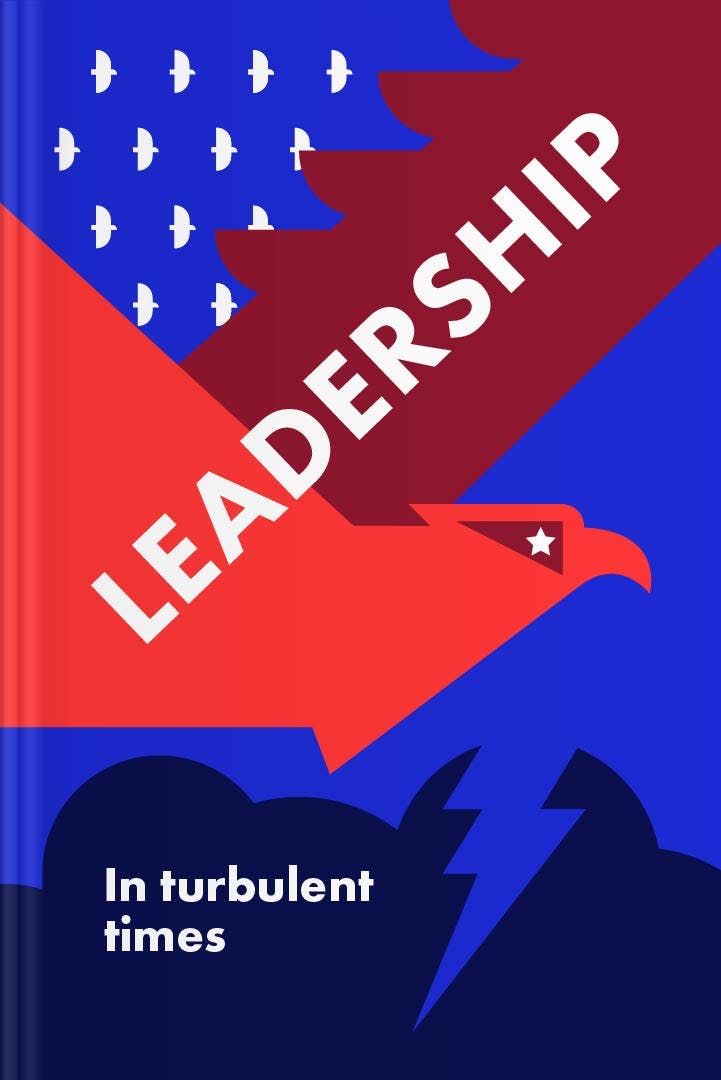 16
16Leadership
by Doris Kearns Goodwin
What is Leadership about?
"Leadership: In Turbulent Times" delves into the lives of four iconic American leaders, exploring their journeys and the challenges they faced during times of crisis. Drawing from extensive research and personal interviews, the book offers profound insights into the qualities that define exceptional leadership. Doris Kearns Goodwin skillfully weaves together narratives of Abraham Lincoln, Theodore Roosevelt, Franklin D. Roosevelt, and Lyndon B. Johnson, providing a compelling exploration of leadership in the face of adversity.
Who should read Leadership
Aspiring leaders seeking guidance in navigating challenging times.
History enthusiasts interested in studying influential leaders' experiences.
Professionals looking to enhance their leadership skills and strategies.
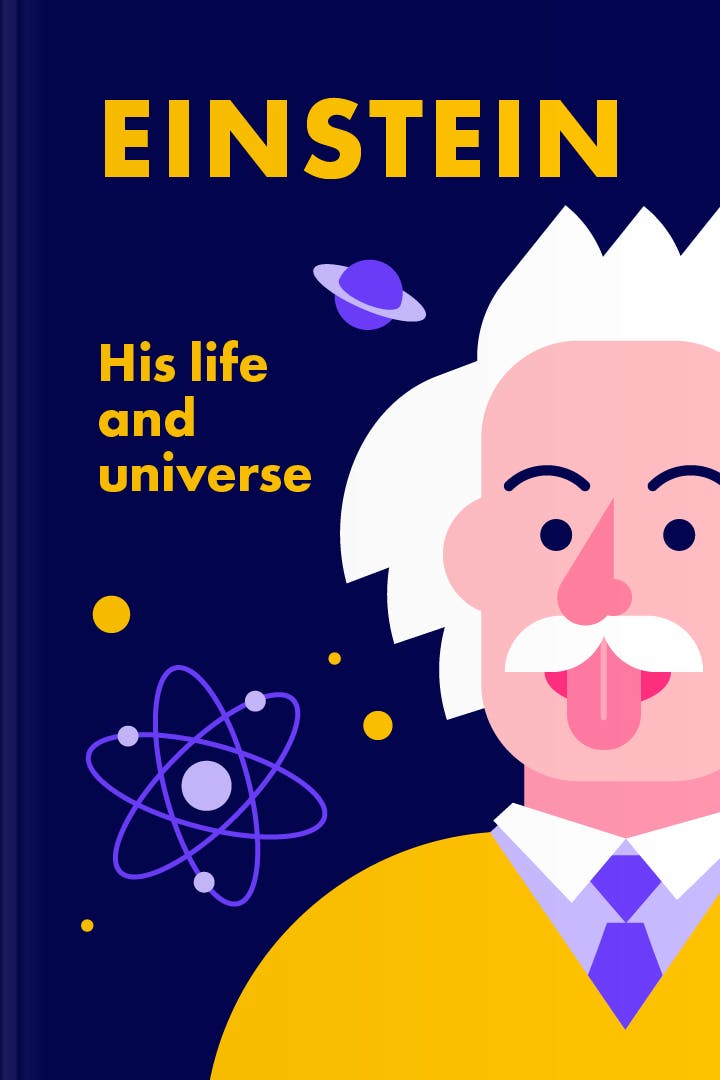 17
17Einstein
by Walter Isaacson
What is Einstein about?
This captivating biography delves into the life and mind of one of the greatest scientific minds in history. From Albert Einstein's humble beginnings to his groundbreaking theories, Walter Isaacson paints a vivid portrait of the man behind the genius. Exploring his personal struggles, scientific achievements, and lasting impact on the world, this book offers a comprehensive and engaging account of Einstein's life and his revolutionary contributions to physics.
Who should read Einstein
Science enthusiasts seeking a comprehensive biography of Albert Einstein.
History buffs interested in understanding the life of a renowned physicist.
Students and scholars studying the life and contributions of Einstein.
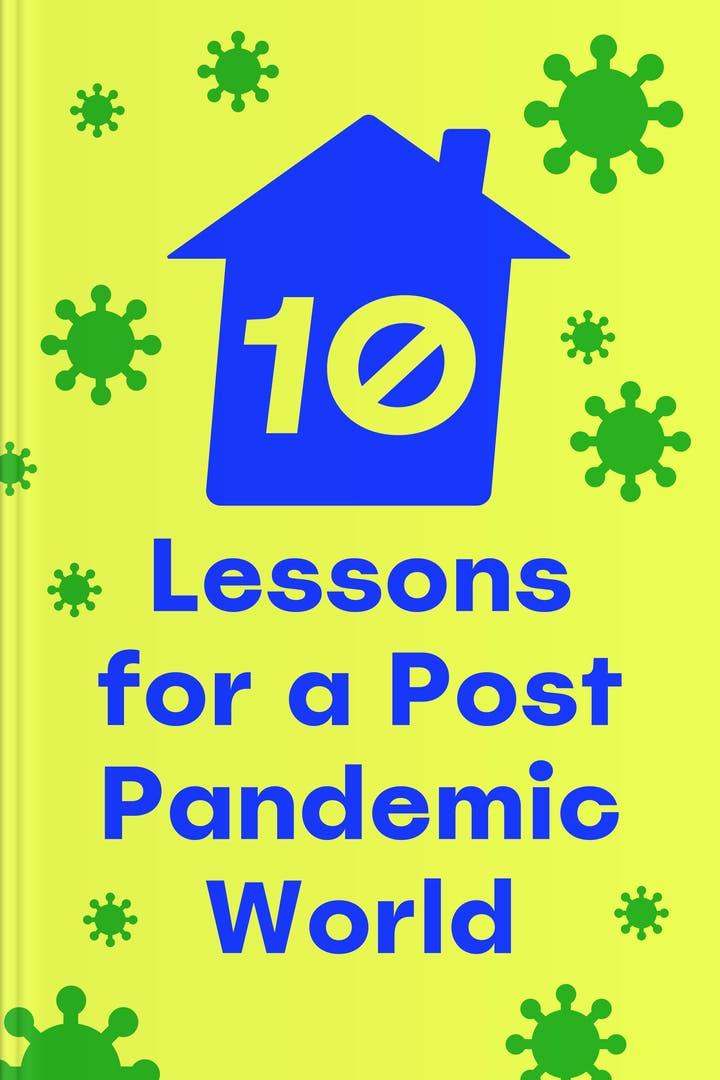 18
18Ten Lessons for a Post-Pandemic World
by Fareed Zakaria
What is Ten Lessons for a Post-Pandemic World about?
In this thought-provoking book, a renowned author and journalist offers invaluable insights into the challenges and opportunities that lie ahead in a post-pandemic world. Through ten compelling lessons, he explores the impact of the pandemic on various aspects of our lives, including politics, technology, and globalization. With a keen eye for detail and a global perspective, the author provides a roadmap for navigating the uncertain future and building a more resilient and inclusive world.
Who should read Ten Lessons for a Post-Pandemic World
Individuals seeking a comprehensive understanding of the global impact of pandemics.
Policy makers and leaders looking for insights on navigating post-pandemic challenges.
Students and academics interested in analyzing the societal implications of pandemics.
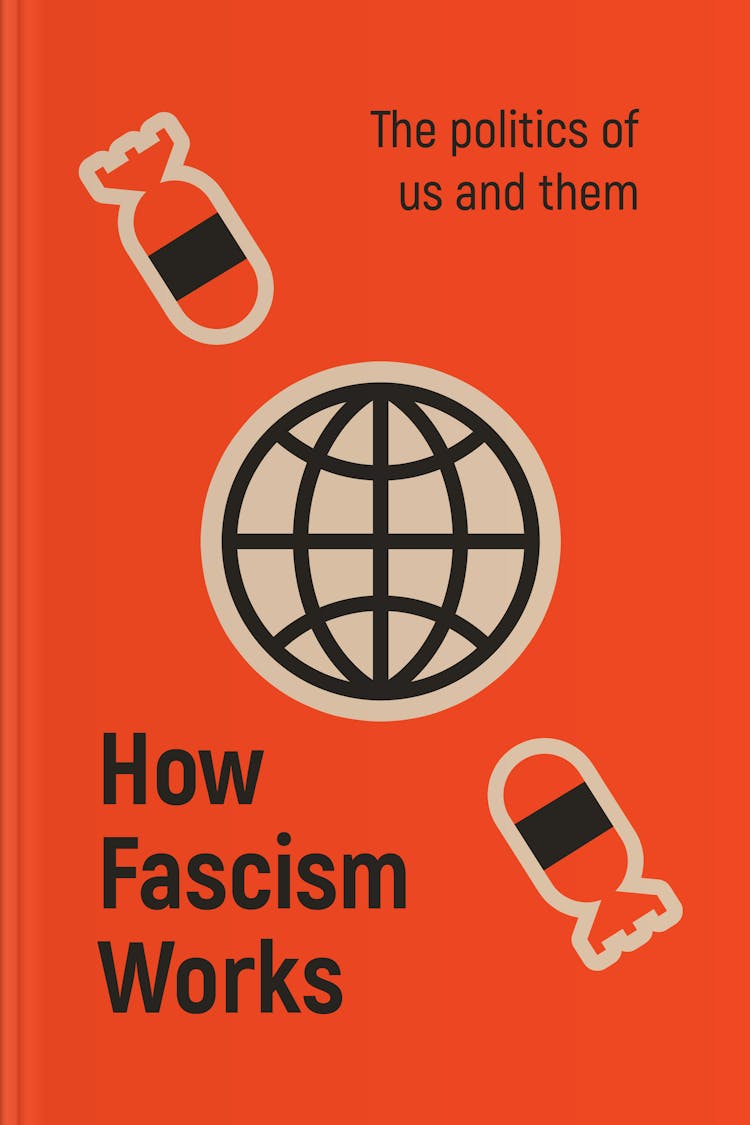 19
19How Fascism Works
by Jason Stanley
What is How Fascism Works about?
In this thought-provoking book, the author delves into the intricate workings of fascism, exploring its underlying principles and tactics. Through a comprehensive analysis, he reveals how fascist ideologies manipulate language, exploit fear, and target vulnerable groups to gain power. Drawing on historical examples and contemporary politics, Stanley offers a compelling examination of the dangerous rise of fascism and its impact on society, urging readers to recognize its signs and actively resist its divisive tactics.
Who should read How Fascism Works
Individuals interested in understanding the historical and contemporary manifestations of fascism.
Political science students seeking a comprehensive analysis of fascist ideologies.
Citizens concerned about the rise of authoritarianism and its implications.
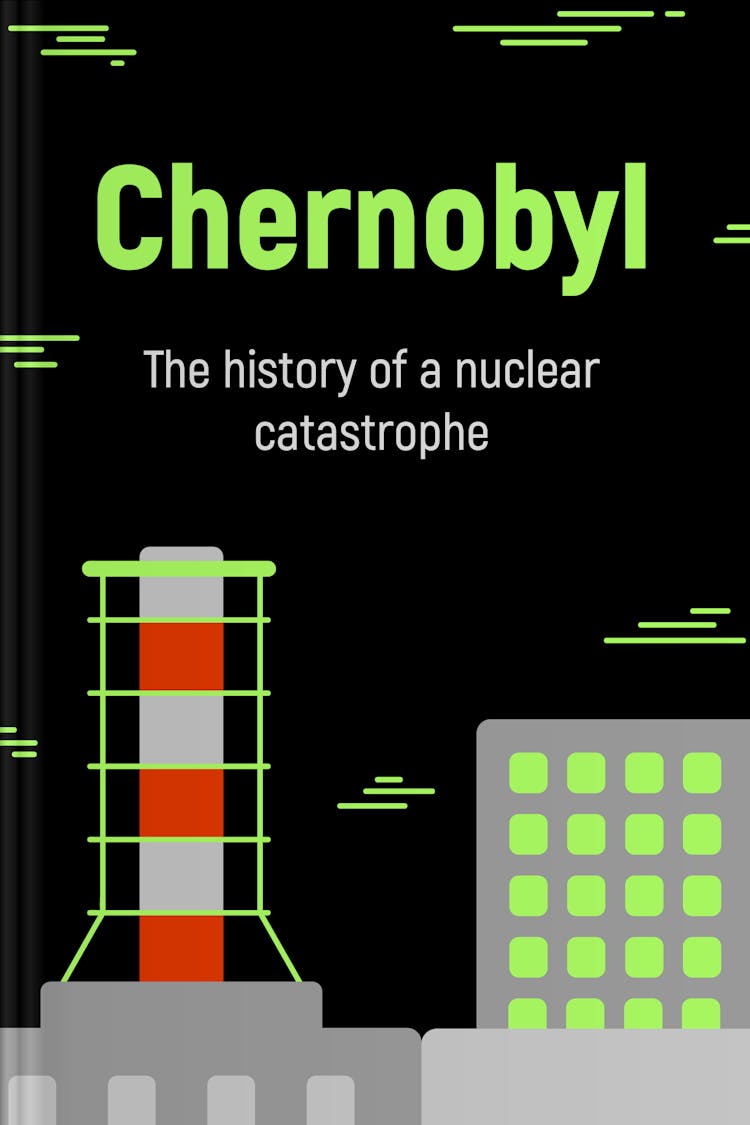 20
20Chernobyl
by Serhii Plokhy
What is Chernobyl about?
"Chernobyl: The History of a Nuclear Catastrophe" delves into the gripping account of one of the world's worst nuclear disasters. Serhii Plokhy meticulously uncovers the events leading up to the catastrophic explosion at the Chernobyl nuclear power plant in 1986, exploring the political, scientific, and human factors that contributed to the tragedy. With meticulous research and compelling storytelling, Plokhy sheds light on the devastating consequences and long-lasting impact of this unprecedented disaster.
Who should read Chernobyl
History enthusiasts interested in understanding the Chernobyl disaster.
Environmentalists concerned about the impact of nuclear accidents.
Researchers and scholars studying the consequences of nuclear catastrophes.
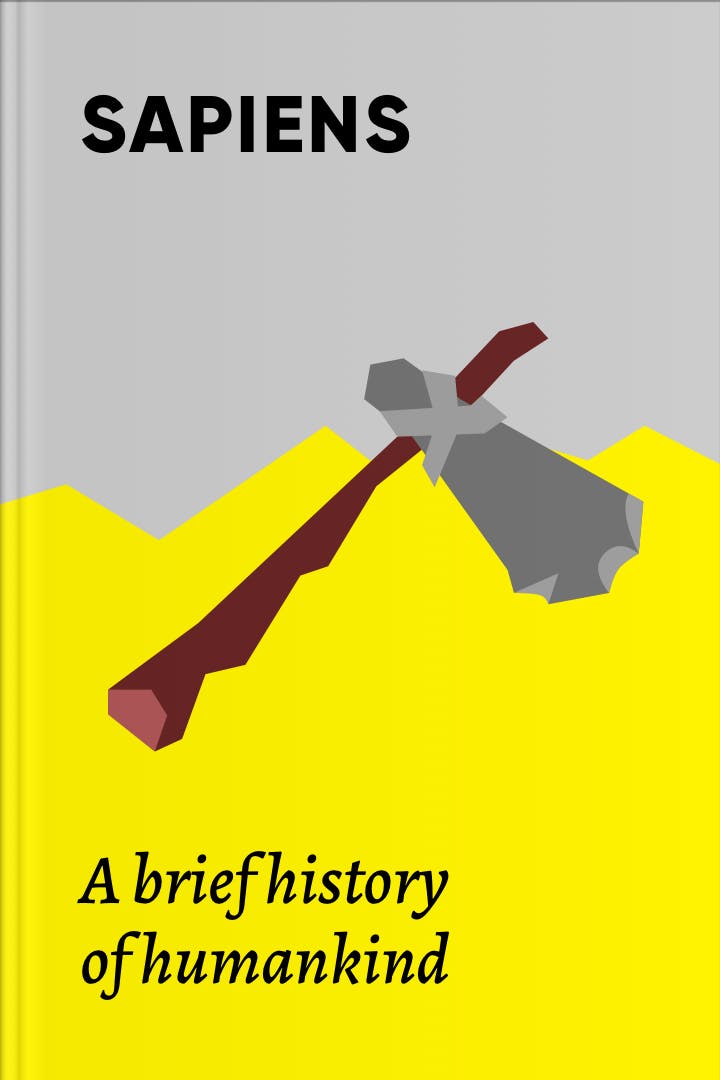 21
21Sapiens
by Yuval Noah Harari
What is Sapiens about?
In this thought-provoking book, the author takes readers on a captivating journey through the history of humankind. From the emergence of Homo sapiens to the present day, Harari explores the key milestones that shaped our species, including the agricultural revolution, the rise of empires, and the impact of technology. With a blend of science, anthropology, and philosophy, "Sapiens" offers a compelling and insightful perspective on the past, present, and future of humanity.
Who should read Sapiens
History enthusiasts seeking a comprehensive understanding of human evolution.
Philosophers and thinkers exploring the origins of human existence.
Students and academics studying anthropology and the development of civilizations.
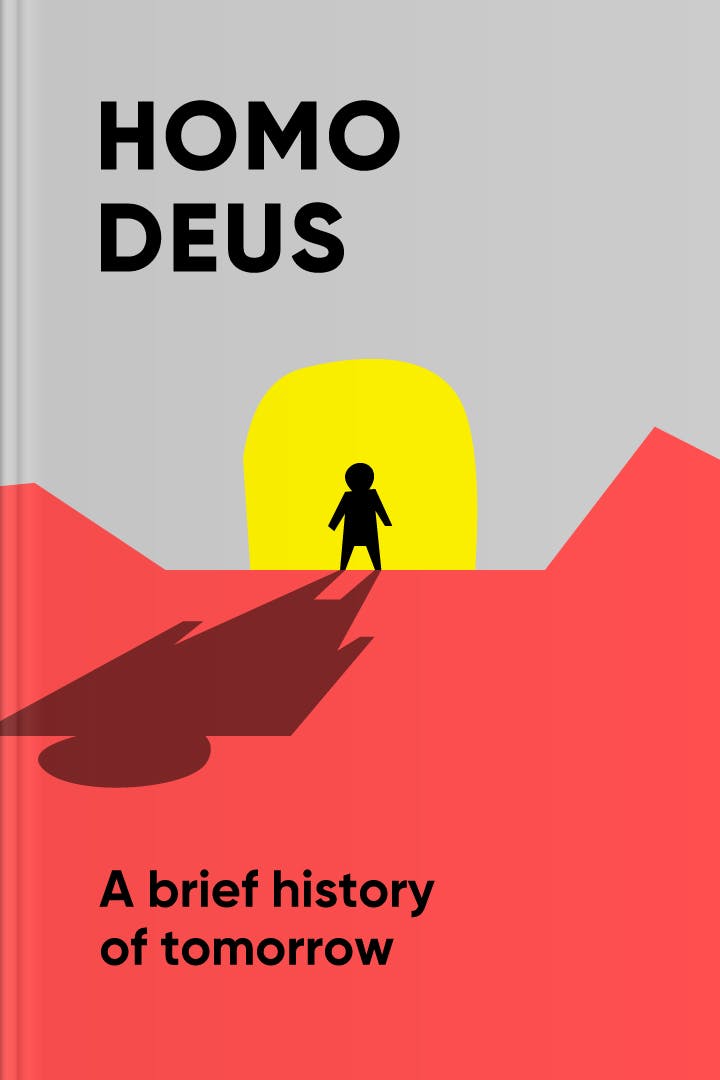 22
22Homo Deus
by Prof. Yuval Noah Harari
What is Homo Deus about?
In this thought-provoking book, a renowned professor explores the future of humanity. Drawing on history and cutting-edge science, the author delves into the potential paths that Homo sapiens may take in the coming years. From advancements in technology to the rise of artificial intelligence, this captivating exploration challenges our understanding of what it means to be human and offers a glimpse into the possibilities that lie ahead.
Who should read Homo Deus
Futurists and technology enthusiasts seeking insights into humanity's future.
History buffs interested in understanding the evolution of human society.
Philosophers and thinkers exploring the implications of technological advancements.
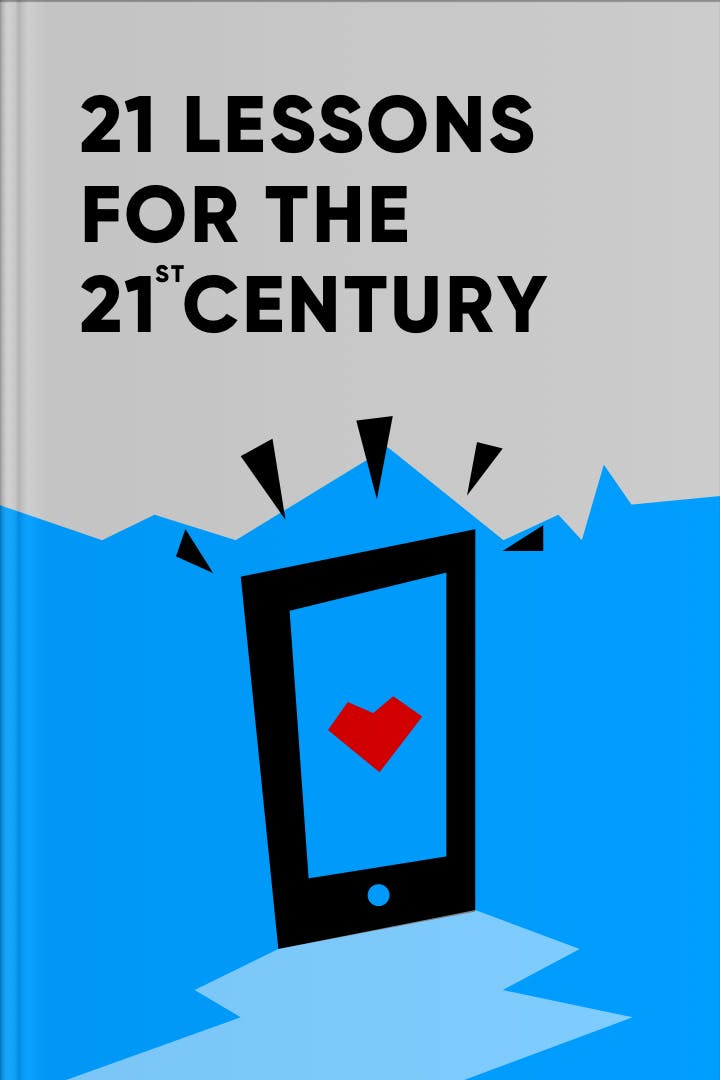 23
2321 Lessons for the 21st Century
by Yuval Noah Harari
What is 21 Lessons for the 21st Century about?
In this thought-provoking book, the renowned author delves into the pressing issues of our time. From the rise of artificial intelligence to the challenges of climate change, Harari offers insightful analysis and raises important questions about the future of humanity. Drawing on history, science, and philosophy, he provides twenty-one thought-provoking lessons that encourage readers to critically examine the complexities of the 21st century and navigate the uncertain path ahead.
Who should read 21 Lessons for the 21st Century
Individuals seeking to understand the complex challenges of the modern world.
Students and scholars interested in the future of humanity.
Anyone curious about the impact of technology and globalization.
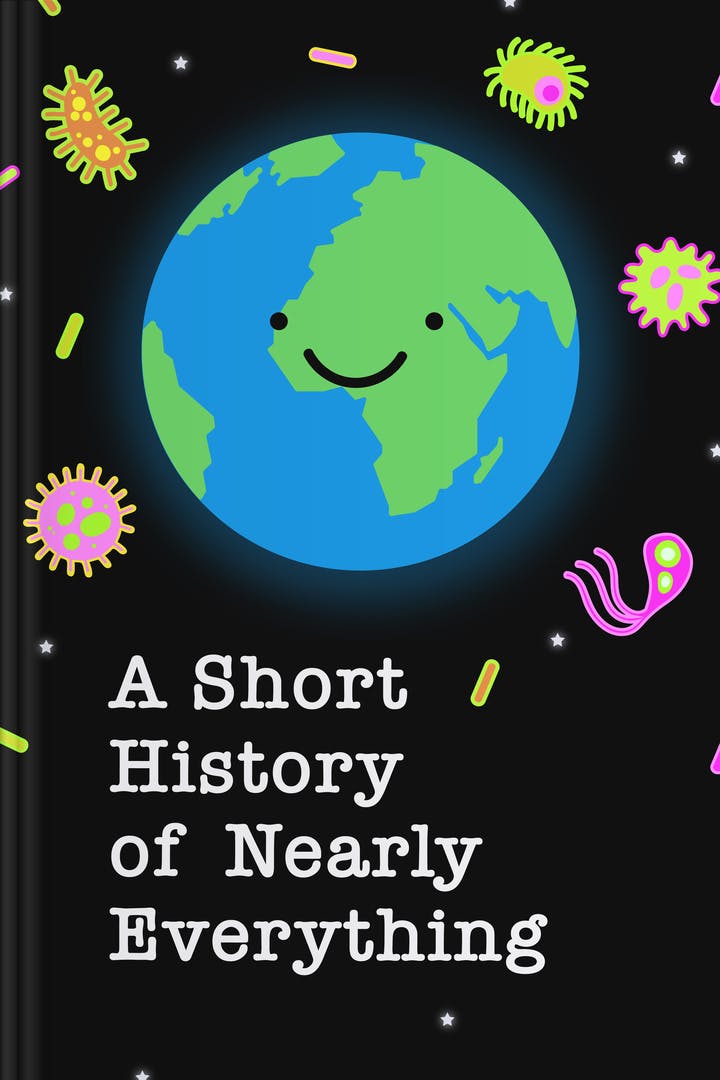 24
24A Short History of Nearly Everything
by Bill Bryson
What is A Short History of Nearly Everything about?
"A Short History of Nearly Everything" is a captivating exploration of the scientific discoveries that have shaped our understanding of the world. Written by a renowned author, this book takes readers on a journey through time, unraveling the mysteries of the universe, the origins of life, and the fascinating stories of the scientists who made groundbreaking contributions. With wit and clarity, it presents complex concepts in an accessible manner, making it a must-read for anyone curious about the wonders of our existence.
Who should read A Short History of Nearly Everything
Science enthusiasts seeking a comprehensive and engaging overview of the universe.
Curious individuals eager to explore the wonders of our world.
Students and educators looking for an accessible science reference book.
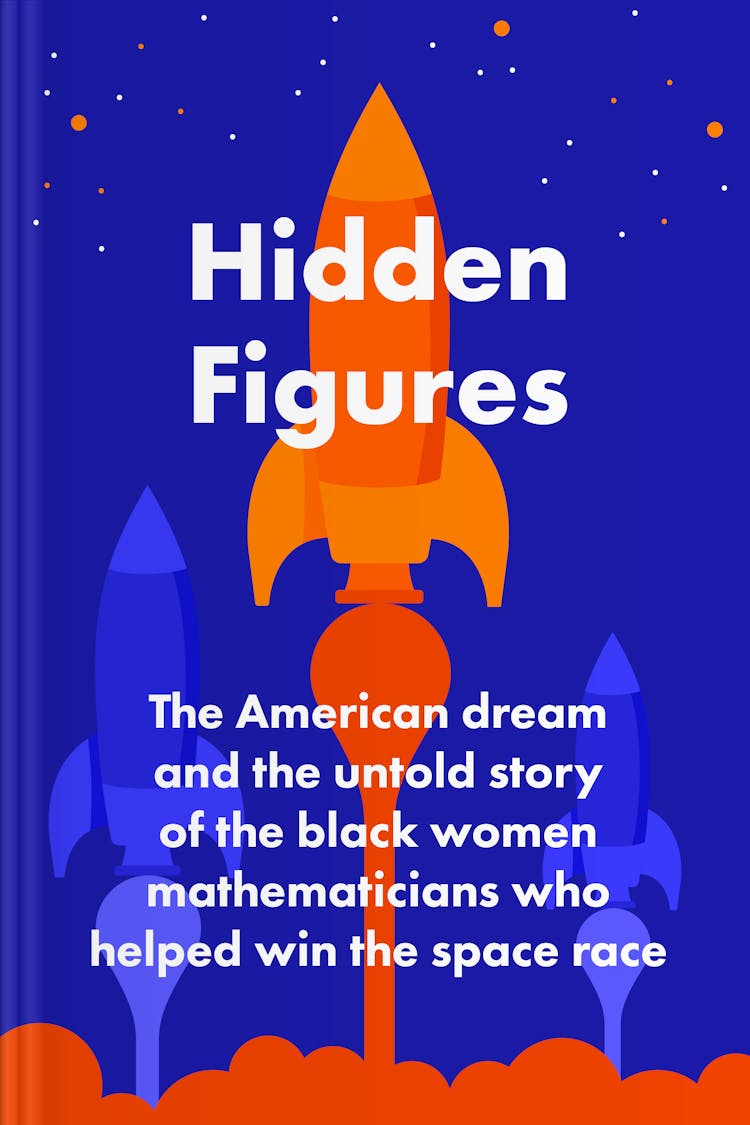 25
25Hidden Figures
by Margot Lee Shetterly
What is Hidden Figures about?
This captivating non-fiction book delves into the untold story of the brilliant African American women who played a pivotal role in the Space Race. Set against the backdrop of racial segregation and gender discrimination, the book highlights the remarkable contributions of these unsung heroes at NASA, whose mathematical expertise and determination shattered barriers, challenged societal norms, and ultimately helped America achieve its greatest scientific triumphs.
Who should read Hidden Figures
History enthusiasts interested in the untold contributions of African American women in the space race.
Students studying the intersection of race
gender
and science.
Anyone seeking inspiring stories of resilience and triumph over adversity.
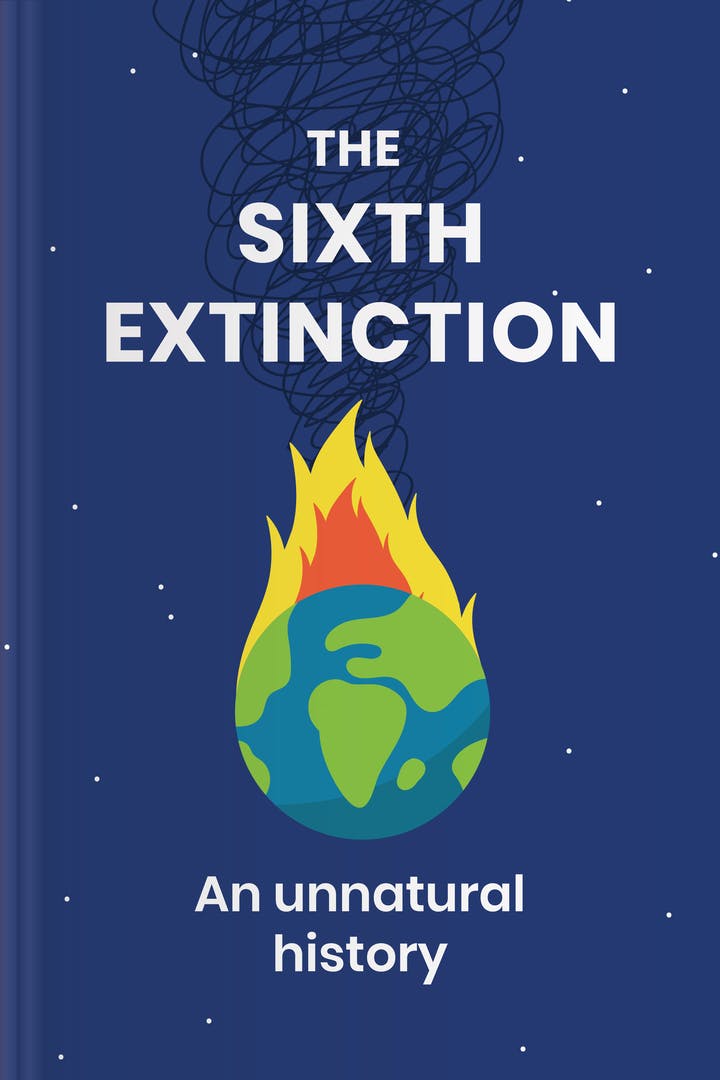 26
26The Sixth Extinction
by Elizabeth Kolbert
What is The Sixth Extinction about?
"The Sixth Extinction: An Unnatural History" by Elizabeth Kolbert explores the alarming reality of Earth's ongoing sixth mass extinction event. Through captivating storytelling and scientific research, Kolbert delves into the devastating impact of human activities on the planet's biodiversity. From the extinction of various species to the potential consequences for humanity, this thought-provoking book sheds light on the urgent need for environmental awareness and action to prevent further irreversible damage to our fragile ecosystems.
Who should read The Sixth Extinction
Environmentalists and conservationists interested in understanding the current state of biodiversity loss.
Science enthusiasts seeking a comprehensive exploration of the Earth's past mass extinctions.
Policy makers and educators looking for insights into the consequences of human activities on the planet.
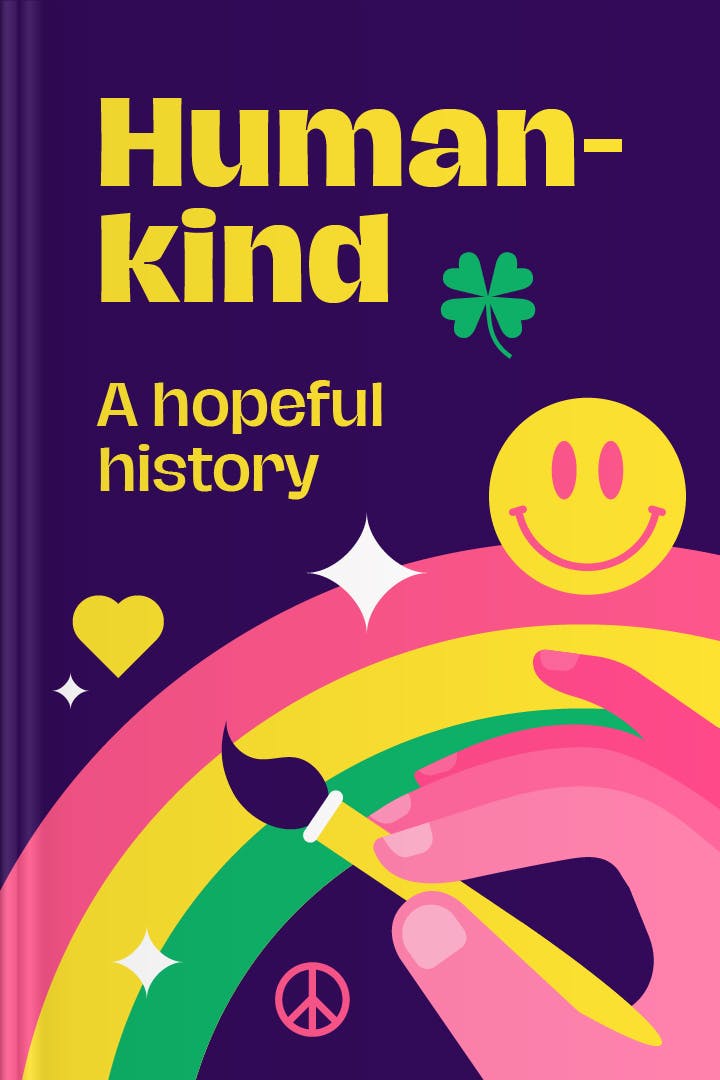 27
27Humankind
by Rutger Bregman
What is Humankind about?
In this thought-provoking book, Rutger Bregman challenges the prevailing belief that humans are inherently selfish and driven by self-interest. Drawing on a wealth of historical evidence and psychological research, he presents a compelling argument that humans are fundamentally good and cooperative beings. Bregman explores how this understanding can reshape our society, offering a hopeful vision for a more compassionate and empathetic future.
Who should read Humankind
Anyone seeking a fresh perspective on human nature and society.
Social scientists and historians interested in reevaluating humanity's potential.
Individuals looking for inspiration and hope in turbulent times.
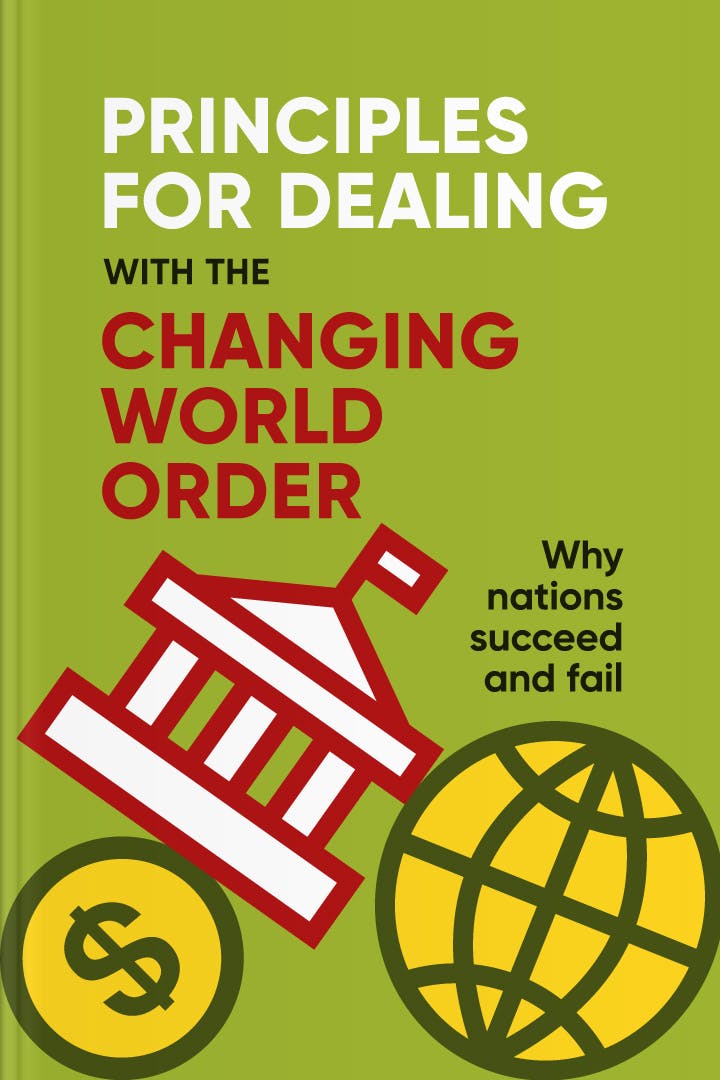 28
28Principles for Dealing with the Changing World Order
by Ray Dalio
What is Principles for Dealing with the Changing World Order about?
In this insightful book, the author delves into the principles that determine the success or failure of nations in the face of a rapidly changing world order. Drawing from his extensive experience in finance and economics, Ray Dalio offers a comprehensive guide to understanding the dynamics of global power shifts and provides valuable insights on how nations can adapt and thrive in an ever-evolving geopolitical landscape.
Who should read Principles for Dealing with the Changing World Order
Global policymakers seeking insights into navigating the evolving world order.
Business leaders aiming to understand the impact of geopolitical shifts.
Students and scholars of international relations and political science.
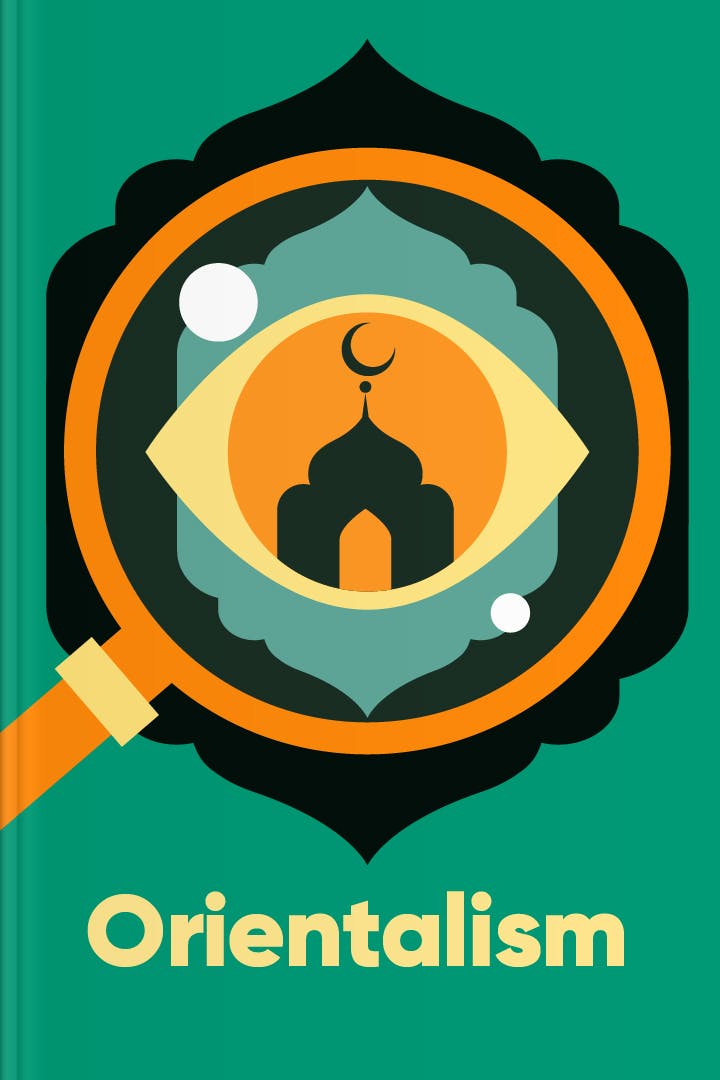 29
29Orientalism
by Edward W. Said
What is Orientalism about?
In this thought-provoking book, the author delves into the complex relationship between the West and the East, exploring the concept of Orientalism. Through meticulous analysis, Said examines how Western societies have constructed and perpetuated distorted images and stereotypes of the East, shaping their own identity in the process. With a critical lens, he challenges prevailing narratives and offers a compelling argument for the need to reevaluate and redefine our understanding of the East-West dynamic.
Who should read Orientalism
Scholars and students of postcolonial studies and cultural criticism.
Individuals interested in understanding the historical and cultural impact of Western representations of the East.
Readers seeking a critical analysis of Orientalist discourse and its implications.
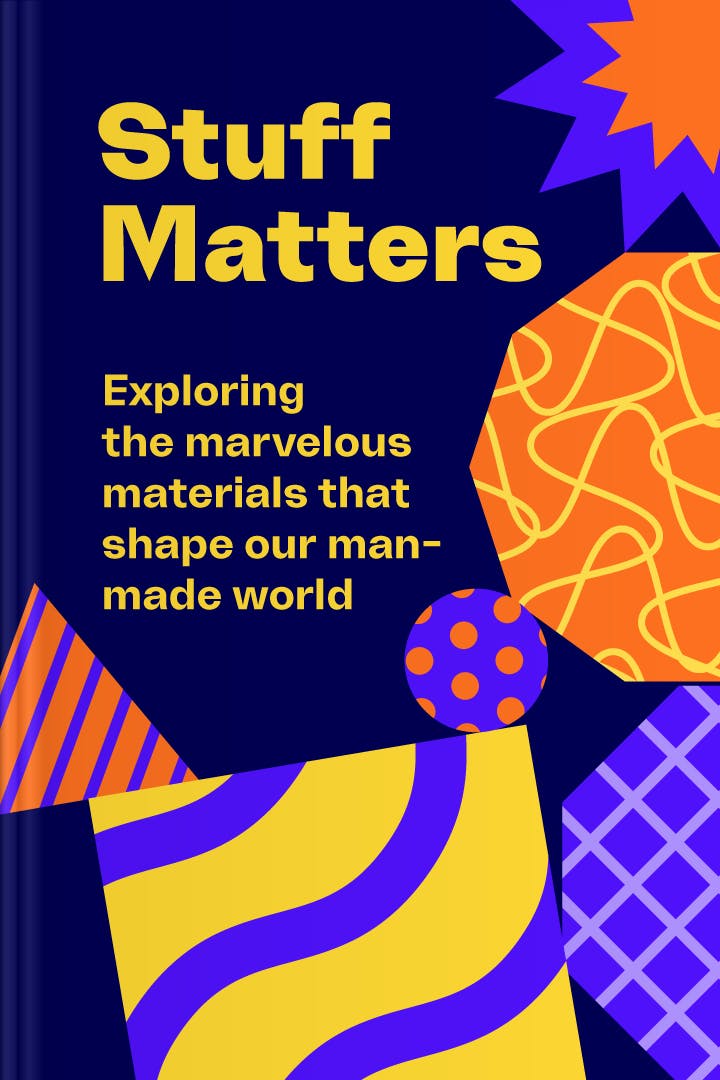 30
30Stuff Matters
by Mark Miodownik, Ph.D.
What is Stuff Matters about?
In this captivating exploration, a renowned scientist delves into the fascinating world of materials that surround us, revealing their hidden wonders and impact on our daily lives. From the glass in skyscrapers to the steel in our cars, Mark Miodownik takes readers on a journey through the history, science, and art behind the materials that shape our modern world, offering a fresh perspective on the seemingly ordinary objects we often overlook.
Who should read Stuff Matters
Scientists and engineers seeking a deeper understanding of materials.
Curious individuals interested in the science behind everyday objects.
Students studying materials science or related fields.
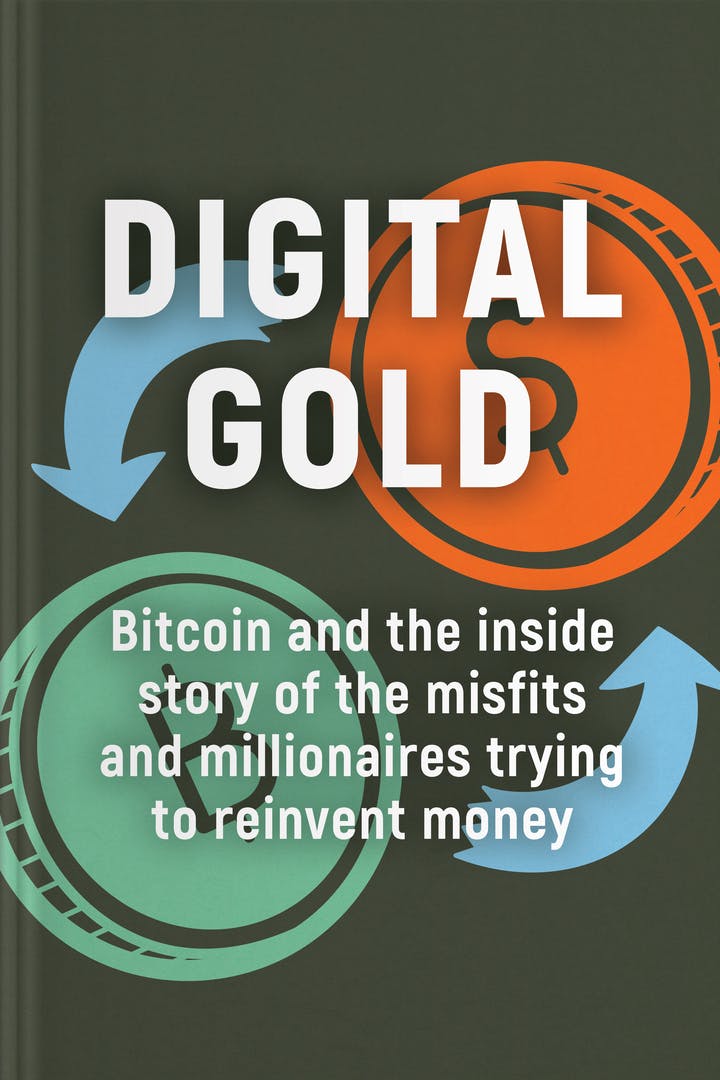 31
31Digital Gold
by Nathaniel Popper
What is Digital Gold about?
In this captivating non-fiction book, Nathaniel Popper delves into the world of Bitcoin, the revolutionary digital currency that has captured the attention of misfits and millionaires alike. Popper takes readers on a thrilling journey, uncovering the origins of Bitcoin and the individuals who have dedicated their lives to reinventing money. With a blend of investigative journalism and personal narratives, "Digital Gold" offers a fascinating exploration of the rise and challenges faced by this groundbreaking technology.
Who should read Digital Gold
Cryptocurrency enthusiasts seeking an in-depth exploration of Bitcoin's origins and impact.
Investors looking to understand the potential of Bitcoin as a disruptive financial technology.
Individuals curious about the stories of the unconventional pioneers behind Bitcoin's rise.
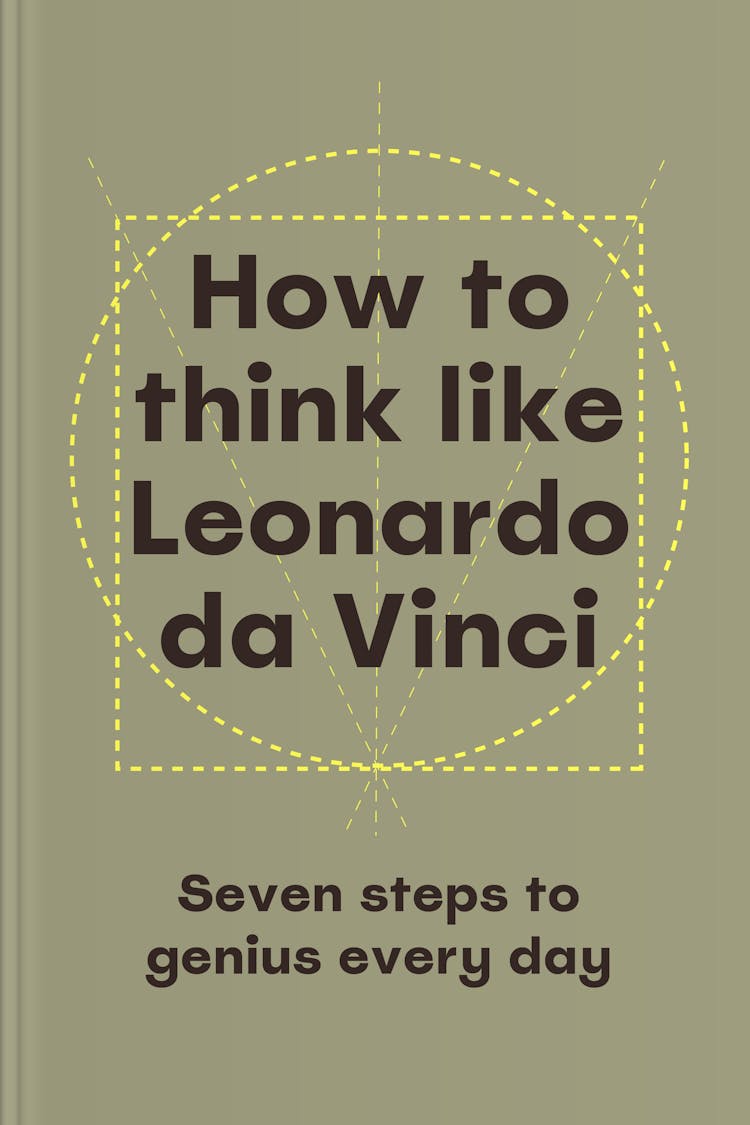 32
32How to Think Like Leonardo da Vinci
by Michael J. Gelb
What is How to Think Like Leonardo da Vinci about?
In this insightful guide, the author explores the mind of the legendary artist and inventor, Leonardo da Vinci, revealing seven practical steps to cultivate genius in our daily lives. Drawing from da Vinci's notebooks, Gelb presents exercises and techniques to enhance creativity, sharpen thinking skills, and foster a holistic approach to problem-solving. This book offers a captivating journey into the mind of a genius, inspiring readers to unlock their own potential and think like da Vinci.
Who should read How to Think Like Leonardo da Vinci
Aspiring artists and creatives seeking to unlock their potential.
Professionals looking to enhance their problem-solving and critical thinking skills.
History enthusiasts interested in understanding the mind of Leonardo da Vinci.
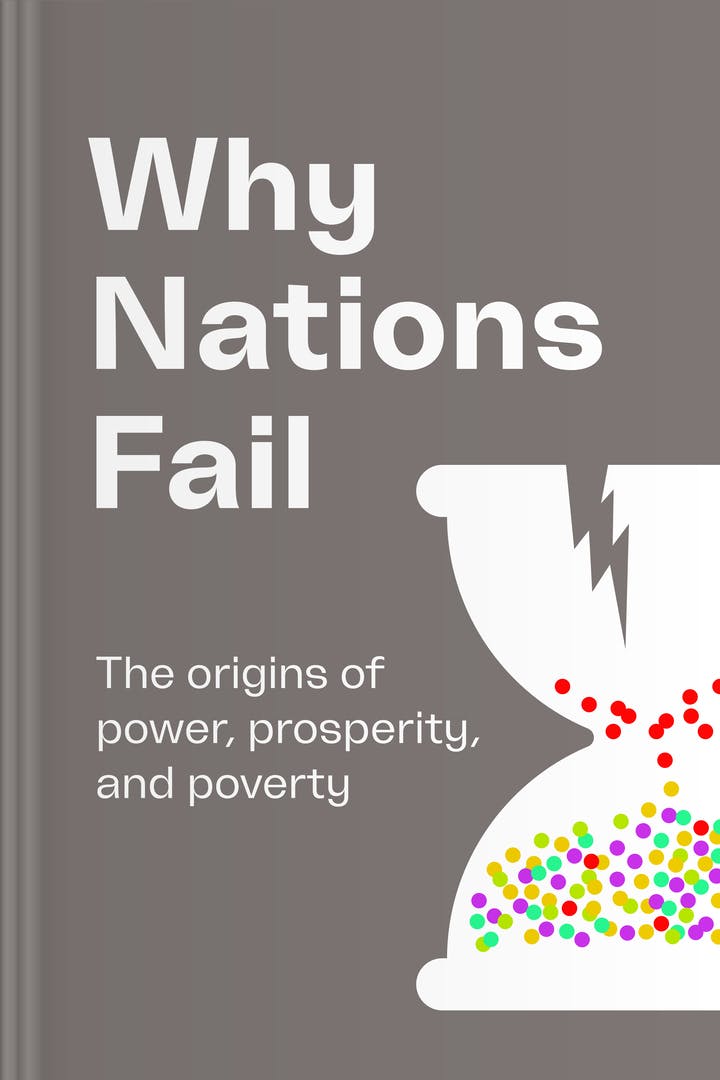 33
33Why Nations Fail
by Daron Acemoglu and James A. Robinson
What is Why Nations Fail about?
"Why Nations Fail" explores the factors that determine the success or failure of nations. Acemoglu and Robinson argue that inclusive political and economic institutions are crucial for long-term prosperity, while extractive institutions lead to poverty and stagnation. Through historical analysis and case studies, the authors examine the origins of power and the impact of institutions on societies, shedding light on the complex dynamics that shape the fate of nations.
Who should read Why Nations Fail
Economists and political scientists interested in understanding the roots of economic inequality.
Policy makers and government officials seeking insights into fostering inclusive growth.
Students and researchers studying the impact of institutions on development.
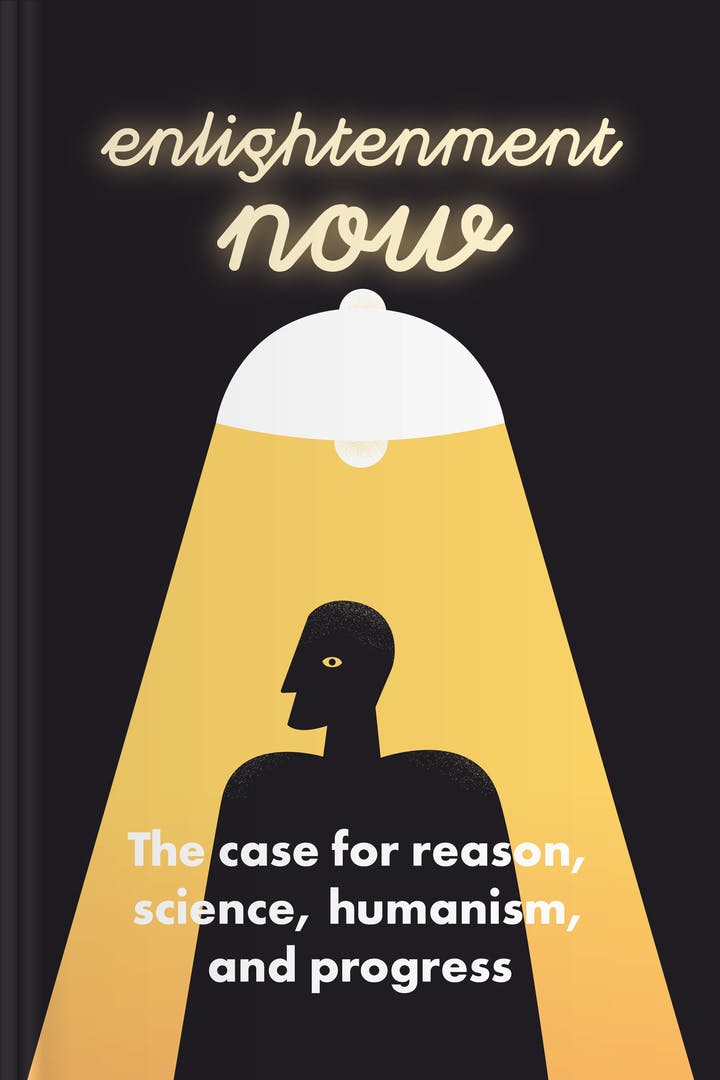 34
34Enlightenment Now
by Steven Pinker
What is Enlightenment Now about?
In this thought-provoking book, the author explores the power of reason, science, humanism, and progress in shaping our world. Through a comprehensive analysis of data and historical trends, Pinker argues that despite the prevailing pessimism, humanity has made remarkable advancements in various aspects of life. From health and education to peace and prosperity, he presents a compelling case for embracing enlightenment values to continue our journey towards a better future.
Who should read Enlightenment Now
Individuals seeking a comprehensive understanding of the positive impact of reason
science
humanism
and progress on society.
Scholars and academics interested in exploring the interconnectedness of reason
science
humanism
and progress in shaping our world.
Those looking for evidence-based arguments to counter pessimism and embrace optimism about the future.
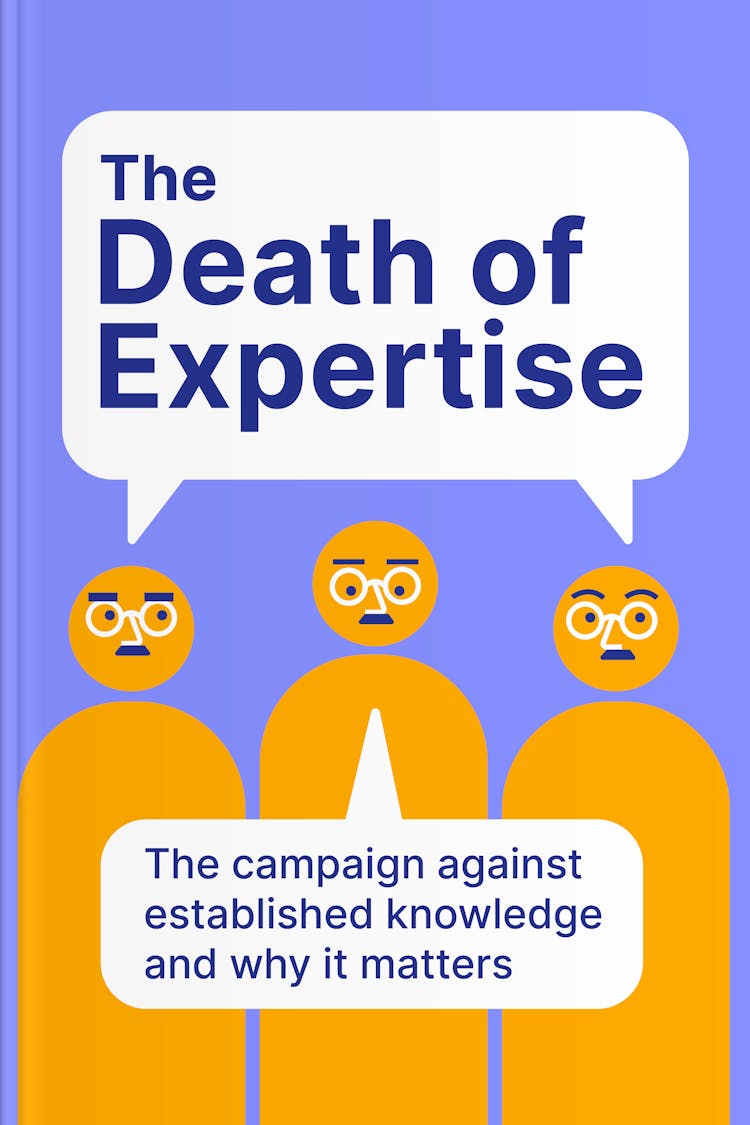 35
35The Death of Expertise
by Tom Nichols, Ph.D.
What is The Death of Expertise about?
In this thought-provoking book, a renowned scholar delves into the alarming rise of anti-intellectualism and the erosion of expertise in modern society. With compelling arguments and extensive research, the author explores the consequences of dismissing established knowledge, highlighting the dangers it poses to democracy, public policy, and even our personal lives. A wake-up call to value and respect expertise, this book urges readers to confront the perils of a society that disregards the wisdom of experts.
Who should read The Death of Expertise
Educators
researchers
and scholars seeking to understand the erosion of expertise.
Politicians and policymakers grappling with the challenges of anti-intellectualism.
General readers interested in the consequences of dismissing expert opinions.
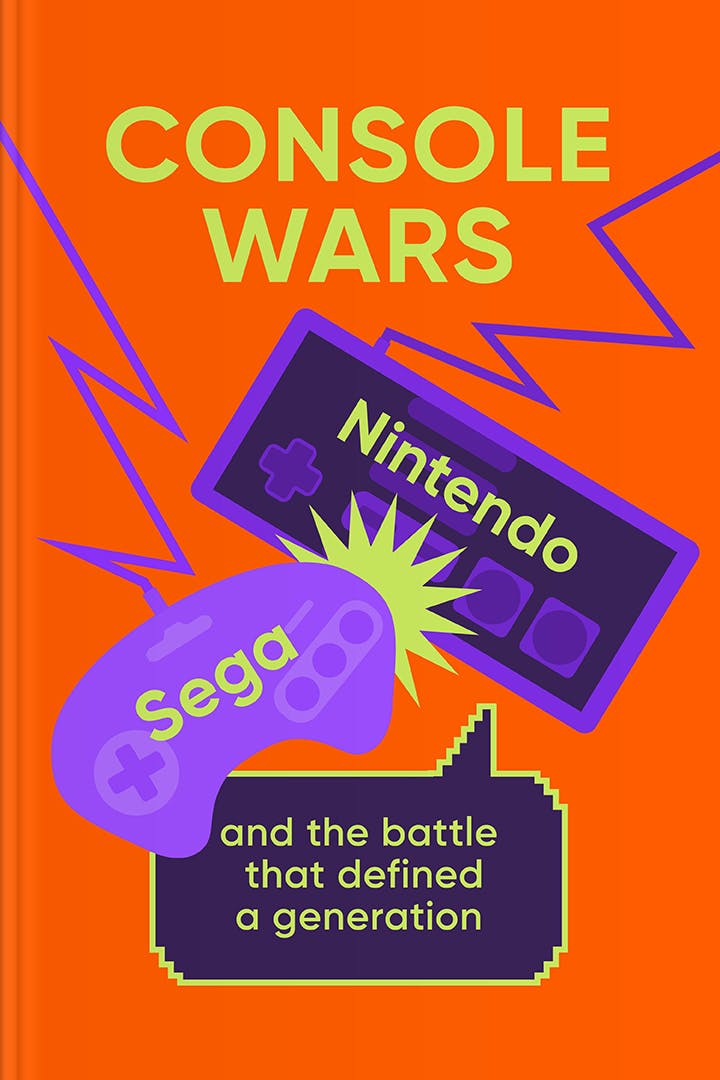 36
36Console Wars
by Blake J. Harris
What is Console Wars about?
"Console Wars" by Blake J. Harris is a captivating non-fiction book that delves into the intense rivalry between gaming giants Sega and Nintendo during the 1990s. This gripping narrative explores the behind-the-scenes battles, strategic moves, and marketing tactics that shaped the video game industry and influenced an entire generation of gamers. Harris provides an in-depth look at the key players, their motivations, and the cultural impact of this epic clash between two gaming powerhouses.
Who should read Console Wars
Gamers and fans of the 90s video game industry.
Business professionals interested in marketing and competition.
History enthusiasts curious about the cultural impact of video games.
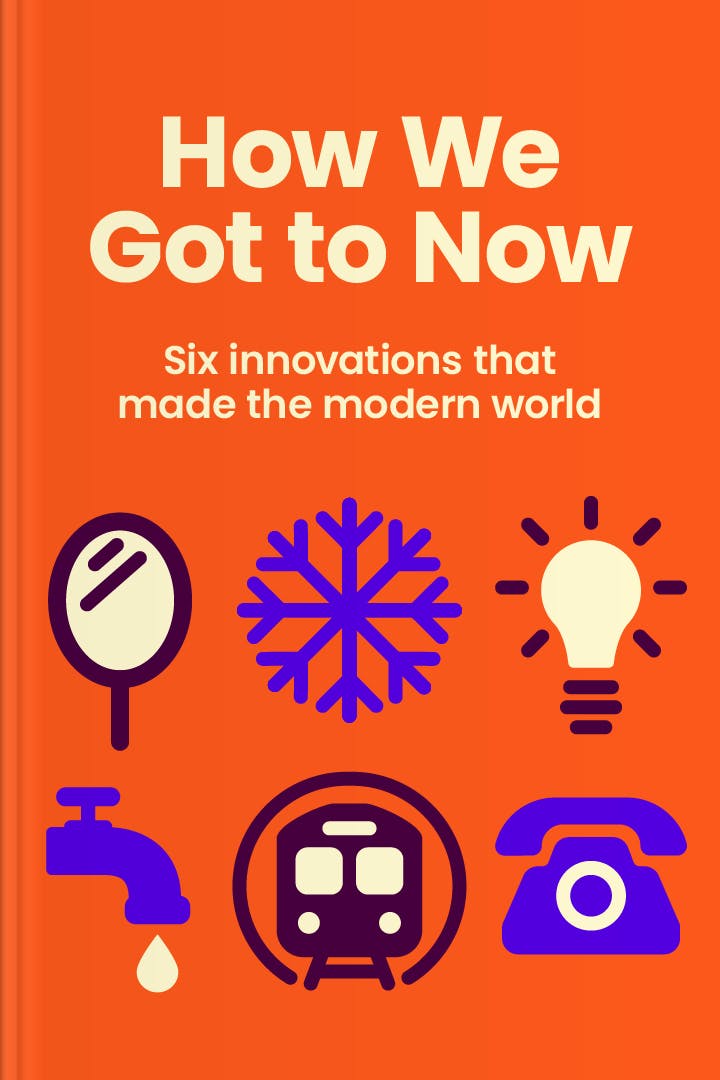 37
37How We Got to Now
by Steven Johnson
What is How We Got to Now about?
In "How We Got to Now," the author explores six pivotal innovations that have shaped the modern world. From the discovery of glass to the development of refrigeration, Steven Johnson delves into the interconnectedness of these breakthroughs and their profound impact on society. Through captivating storytelling and insightful analysis, he reveals the unexpected origins and far-reaching consequences of these innovations, offering a fresh perspective on the history of human progress.
Who should read How We Got to Now
History enthusiasts seeking to understand the pivotal innovations shaping our world.
Science and technology enthusiasts eager to explore the origins of modern advancements.
Curious individuals interested in the interconnectedness of past and present innovations.
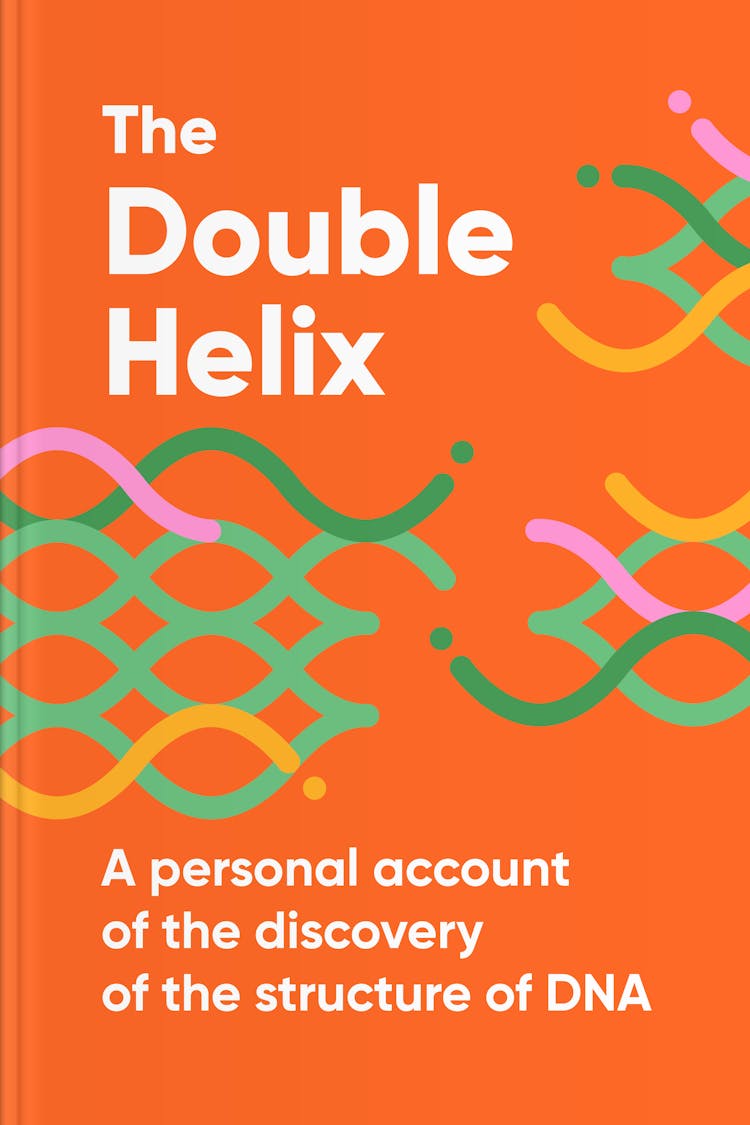 38
38The Double Helix
by James Watson, KBE
What is The Double Helix about?
"The Double Helix" is a captivating memoir that delves into the exhilarating journey of unraveling the mystery behind the structure of DNA. Written by a renowned scientist, this personal account takes readers behind the scenes of the scientific community in the 1950s, revealing the intense competition, brilliant minds, and ethical dilemmas that shaped one of the greatest scientific breakthroughs in history.
Who should read The Double Helix
Scientists and researchers interested in the history of DNA discovery.
Biology students and enthusiasts seeking insights into DNA structure.
Individuals curious about the personal experiences of a renowned scientist.
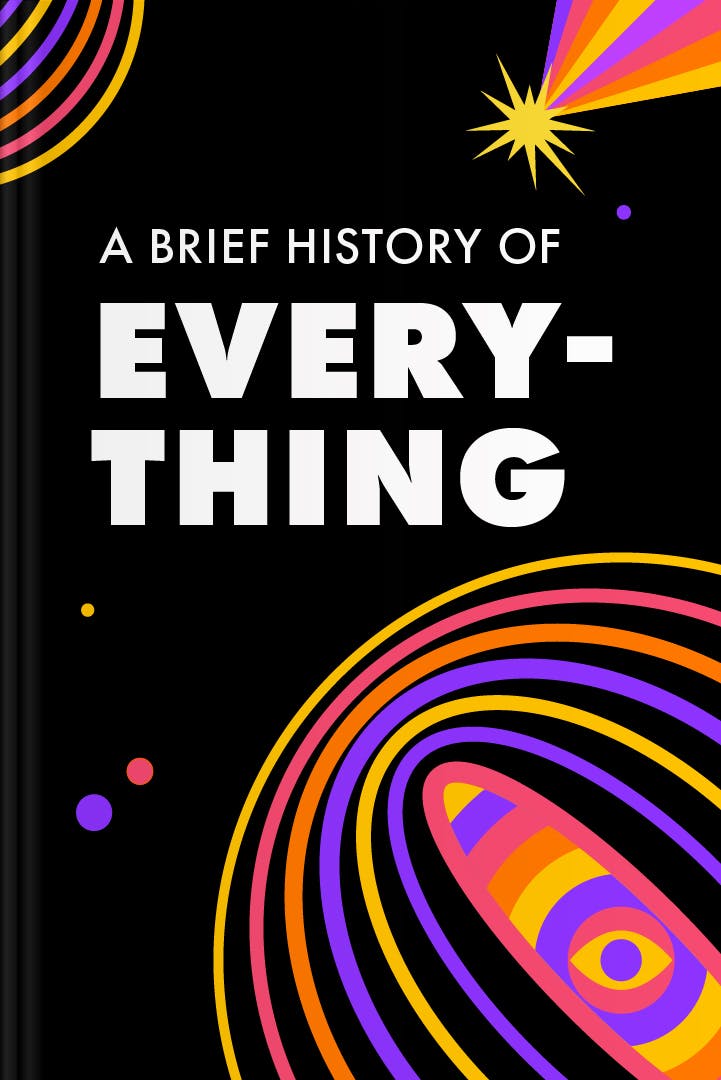 39
39A Brief History of Everything
by Ken Wilber
What is A Brief History of Everything about?
"A Brief History of Everything" is a comprehensive exploration of the evolution of human consciousness and the interconnectedness of all aspects of existence. Ken Wilber delves into various disciplines, including science, philosophy, psychology, and spirituality, to present a unified framework that encompasses the physical, mental, and spiritual dimensions of reality. This thought-provoking book offers a profound understanding of the universe, our place in it, and the potential for personal and collective transformation.
Who should read A Brief History of Everything
Philosophy enthusiasts seeking a comprehensive understanding of the universe.
Students of spirituality and consciousness exploring the interconnectedness of existence.
Individuals curious about the evolution of human thought and culture.
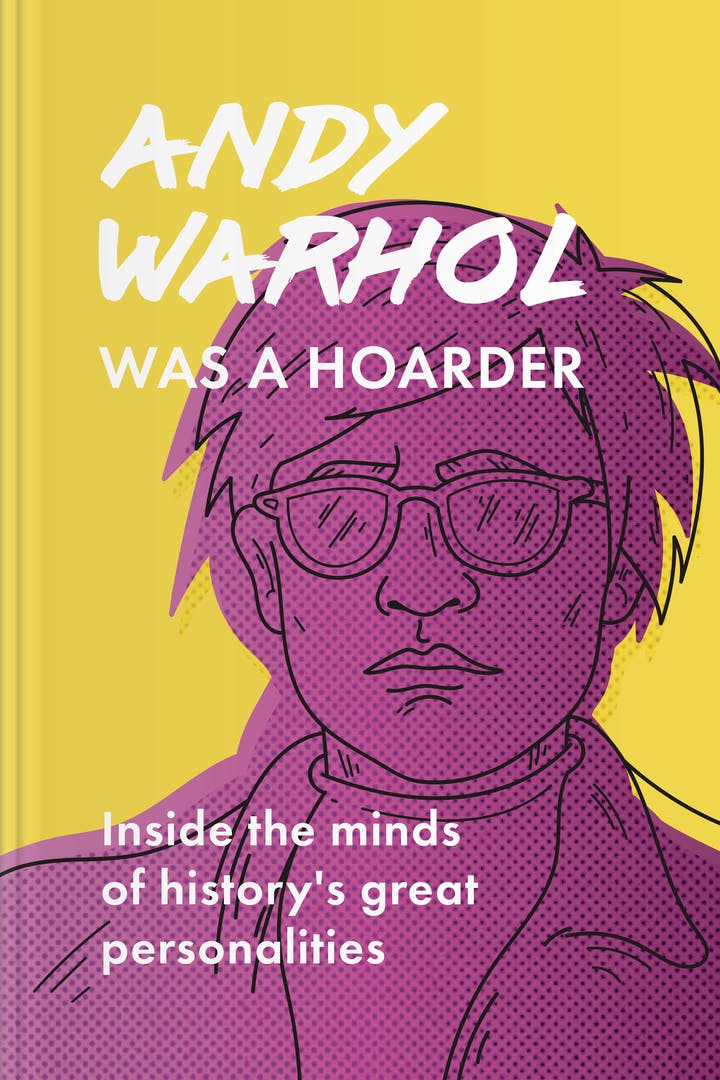 40
40Andy Warhol Was a Hoarder
by Claudia Kalb
What is Andy Warhol Was a Hoarder about?
In "Andy Warhol Was a Hoarder: Inside the Minds of History's Great Personalities," Claudia Kalb delves into the fascinating lives of iconic figures, exploring their struggles with mental health. From Andy Warhol's hoarding disorder to Marilyn Monroe's borderline personality disorder, Kalb uncovers the hidden battles that shaped these individuals. Through meticulous research and engaging storytelling, this book offers a unique perspective on the inner workings of history's great personalities.
Who should read Andy Warhol Was a Hoarder
History enthusiasts seeking insights into the minds of iconic personalities.
Psychology enthusiasts intrigued by the hidden complexities of famous figures.
Individuals interested in understanding the impact of mental health on historical figures.
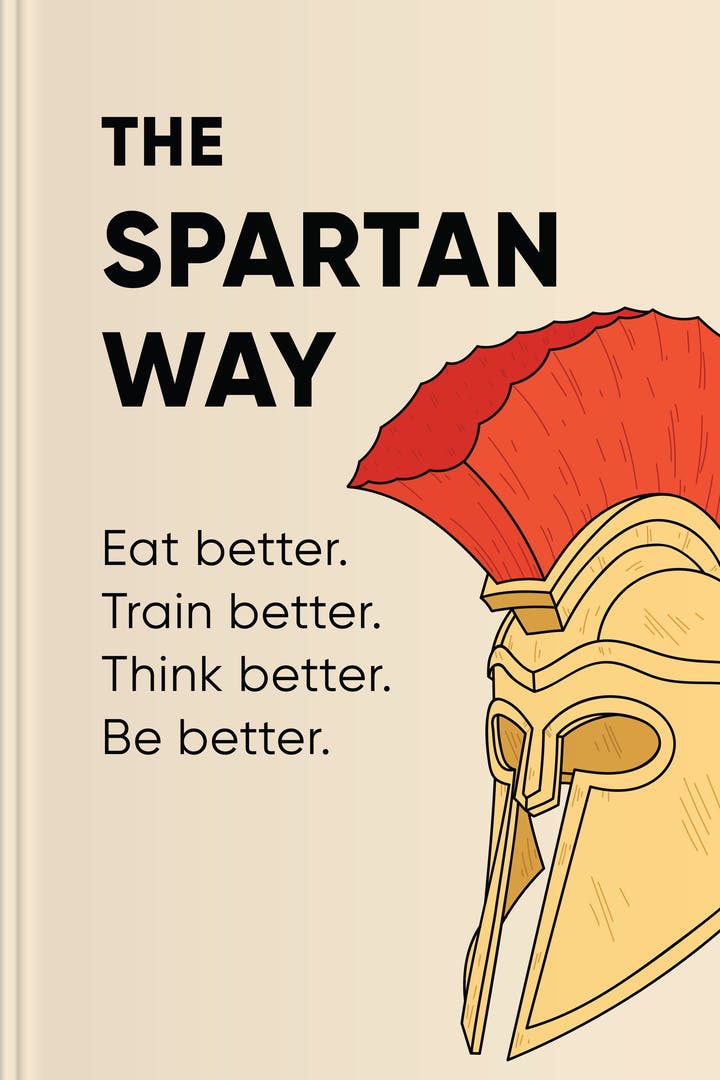 41
41The Spartan Way
by Brett and Kate Mckay
What is The Spartan Way about?
"The Spartan Way" explores the timeless wisdom and principles of ancient Spartan warriors, offering valuable lessons for modern men. Drawing from historical accounts and philosophical teachings, authors Brett and Kate McKay delve into the Spartan way of life, emphasizing discipline, resilience, and self-mastery. This thought-provoking book inspires readers to adopt a Spartan mindset, empowering them to overcome challenges, cultivate inner strength, and lead a purposeful life in today's world.
Who should read The Spartan Way
Men seeking inspiration and guidance from ancient warrior principles.
History enthusiasts interested in the Spartan way of life.
Individuals looking to adopt a disciplined and resilient mindset.
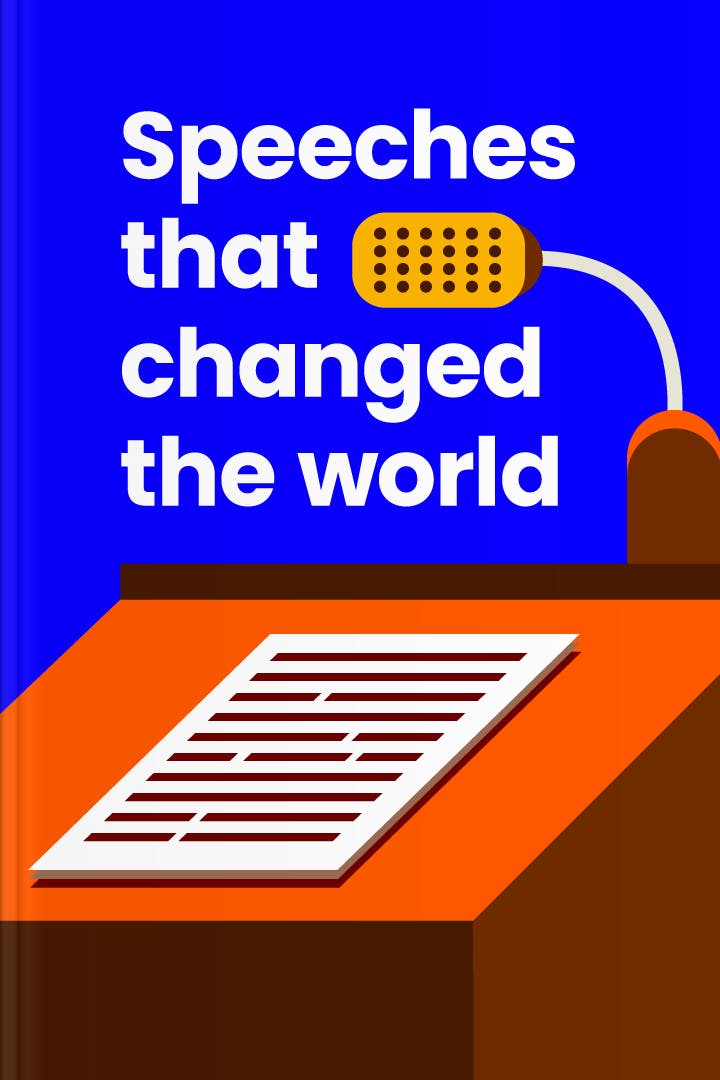 42
42Speeches That Changed the World
by Simon Sebag Montefiore
What is Speeches That Changed the World about?
"Speeches That Changed the World" is a captivating collection of powerful speeches that have shaped history and influenced societies. Written by an acclaimed author, this book delves into the profound impact of speeches delivered by influential figures throughout time. From political leaders to activists, these speeches have ignited revolutions, inspired change, and left an indelible mark on humanity. With insightful analysis and historical context, this book offers a compelling exploration of the transformative power of words.
Who should read Speeches That Changed the World
History enthusiasts seeking to explore influential speeches throughout time.
Students of political science and communication interested in impactful oratory.
Individuals looking for inspiration from powerful speeches that shaped history.
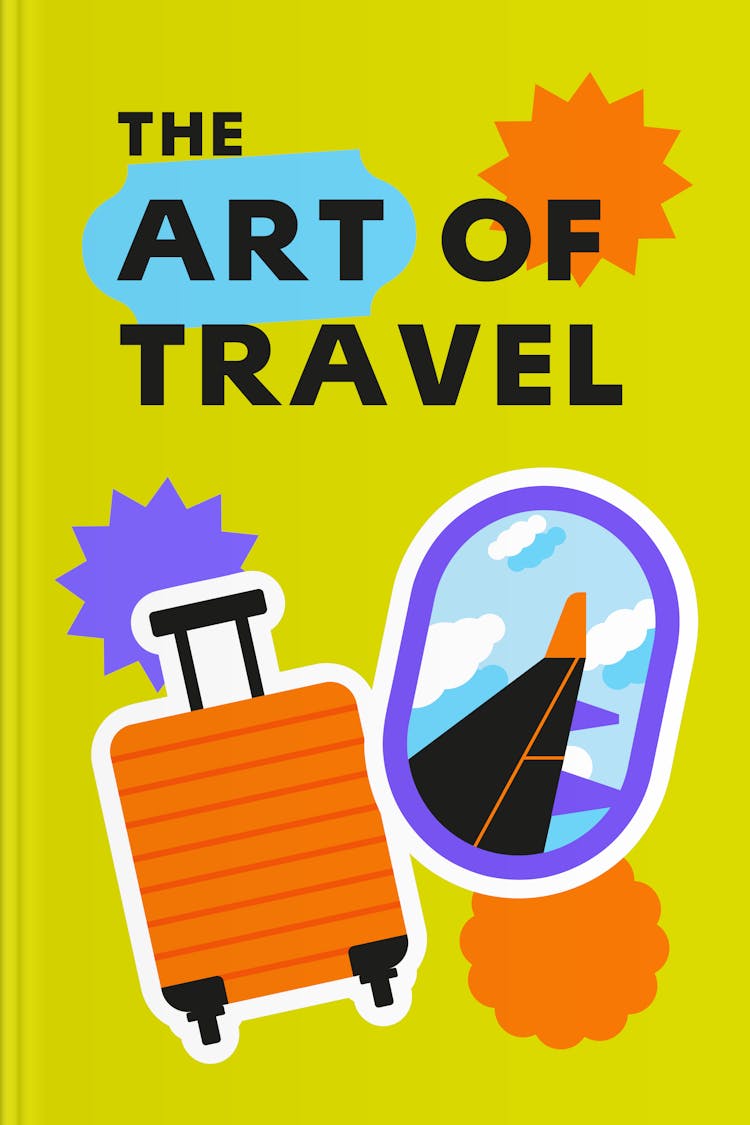 43
43The Art of Travel
by Alain De Botton
What is The Art of Travel about?
"The Art of Travel" explores the intricacies of our desire to travel and the profound impact it has on our lives. Alain De Botton delves into the philosophical and psychological aspects of travel, offering insightful reflections on the anticipation, experiences, and disappointments that come with exploring new places. Through a blend of personal anecdotes, historical references, and artistic inspirations, De Botton invites readers to reconsider the way they approach and appreciate their journeys.
Who should read The Art of Travel
Travel enthusiasts seeking philosophical insights into the transformative power of journeys.
Individuals looking for a fresh perspective on the meaning and purpose of travel.
Those interested in exploring the intersection of art
philosophy
and travel.
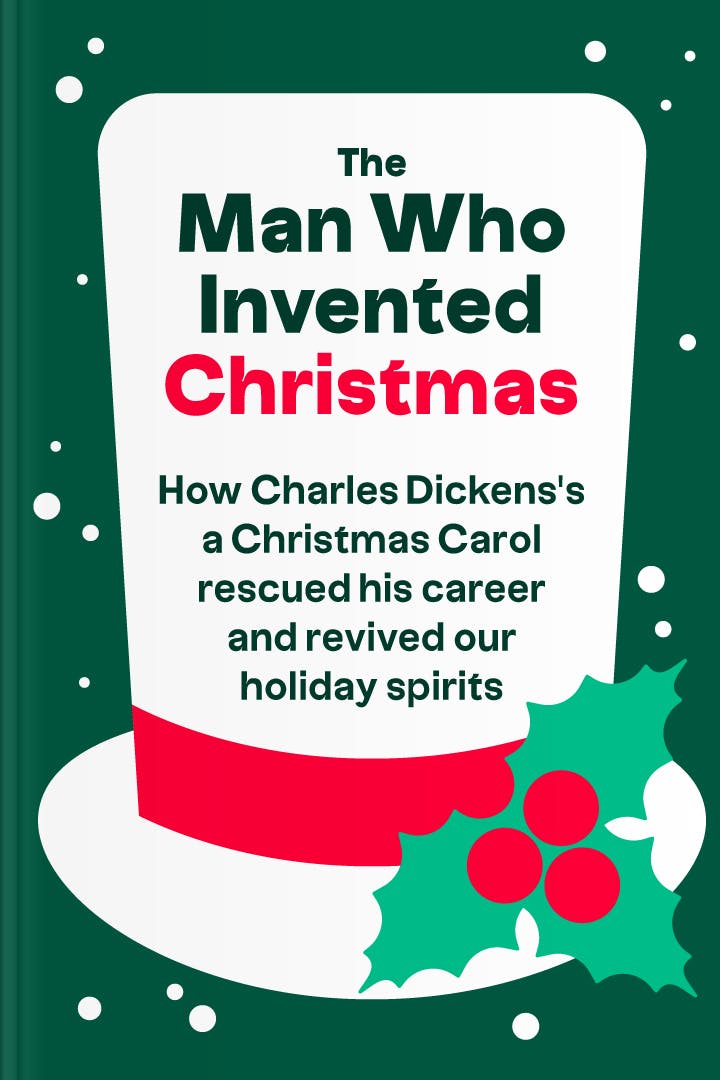 44
44The Man Who Invented Christmas
by Les Standiford
What is The Man Who Invented Christmas about?
In this captivating non-fiction book, Les Standiford delves into the life of Charles Dickens and his iconic novella, A Christmas Carol. Exploring the struggles and setbacks faced by Dickens, Standiford reveals how this timeless tale not only saved the author's career but also revitalized the spirit of Christmas for generations to come. With meticulous research and engaging storytelling, this book offers a fascinating glimpse into the creation of a literary masterpiece and its enduring impact on our holiday traditions.
Who should read The Man Who Invented Christmas
Literature enthusiasts interested in the life and works of Charles Dickens.
History buffs curious about the impact of A Christmas Carol.
Anyone seeking a heartwarming story about the power of redemption.
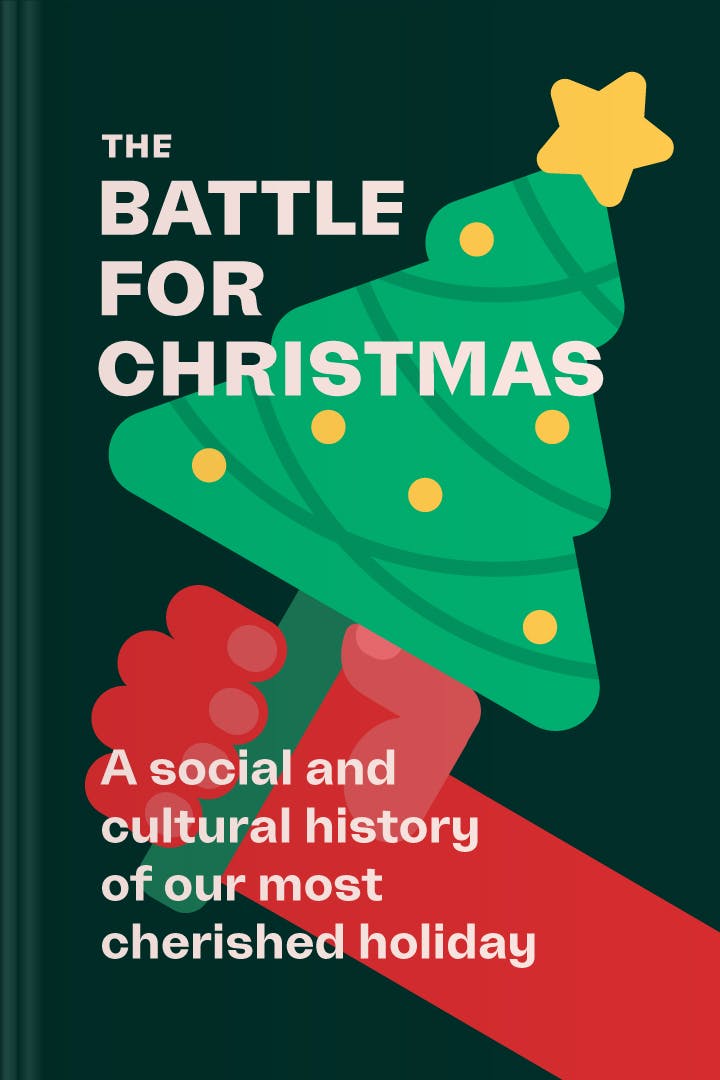 45
45The Battle for Christmas
by Stephen Nissenbaum, Ph.D.
What is The Battle for Christmas about?
In this captivating book, a renowned historian delves into the origins and evolution of Christmas, unraveling its social and cultural significance throughout history. From its humble beginnings as a raucous and rowdy festival to its transformation into a cherished holiday, Nissenbaum explores the battles fought over Christmas traditions, revealing how it has been shaped by religious, political, and economic forces. A fascinating exploration of the holiday's past, this book offers a fresh perspective on our beloved Christmas traditions.
Who should read The Battle for Christmas
History enthusiasts interested in the origins and evolution of Christmas traditions.
Sociologists and cultural anthropologists studying the significance of holidays.
Individuals curious about the social and cultural impact of Christmas.
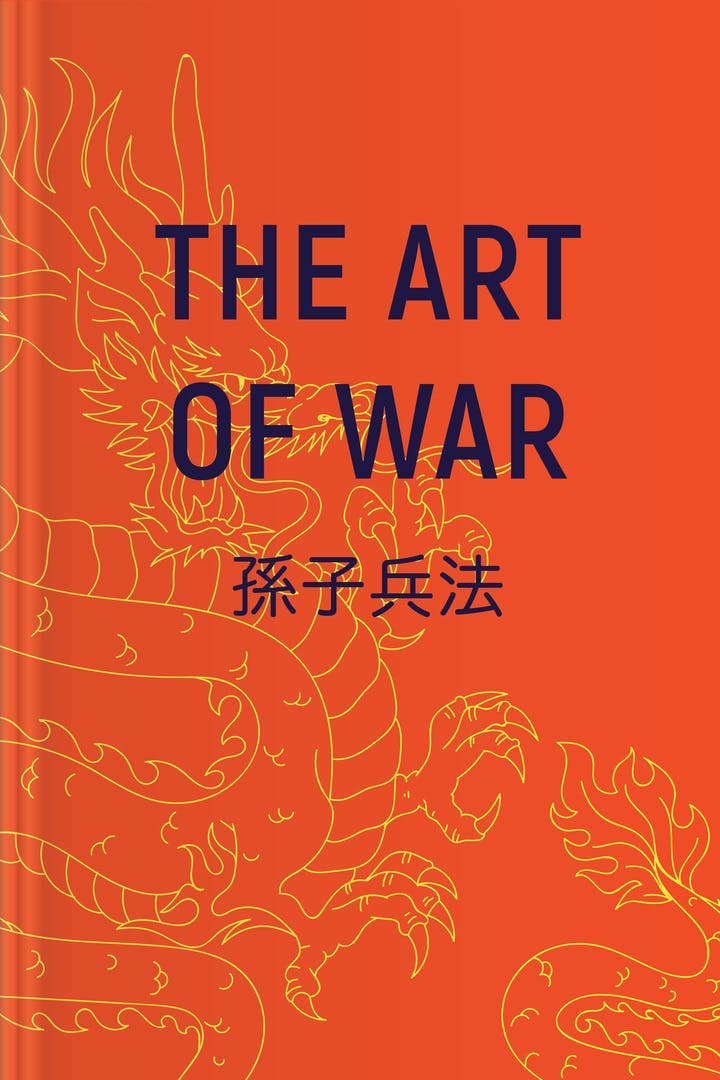 46
46The Art of War
by Sun Tzu
What is The Art of War about?
"The Art of War" is a timeless military strategy book that offers profound insights into the art of warfare. Written by an ancient Chinese military general, this influential text delves into various aspects of warfare, including tactics, leadership, and the importance of understanding one's enemy. With its concise and practical advice, this book has become a go-to guide for military strategists and business leaders alike, providing valuable lessons on how to achieve victory in any competitive situation.
Who should read The Art of War
Military strategists and leaders seeking timeless wisdom on warfare.
Business executives looking to apply strategic principles to their organizations.
History enthusiasts interested in ancient Chinese military philosophy.
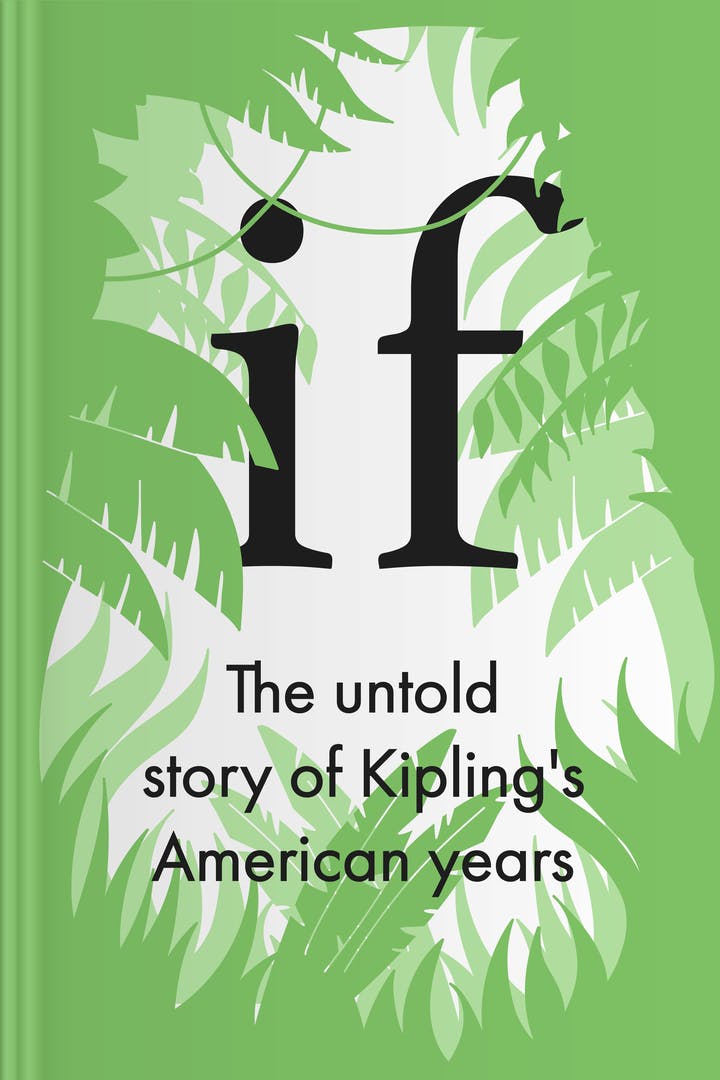 47
47If
by Christopher Benfey
What is If about?
"If: The Untold Story of Kipling’s American Years" delves into the lesser-known period of Rudyard Kipling's life when he resided in the United States. Christopher Benfey uncovers the profound influence America had on Kipling's writing, exploring his friendships with prominent figures like Mark Twain and Theodore Roosevelt. This captivating narrative sheds light on Kipling's experiences and the impact they had on his literary career, offering a fresh perspective on the renowned author's life.
Who should read If
Fans of Rudyard Kipling's work seeking insights into his American experiences.
History enthusiasts interested in exploring Kipling's lesser-known American connections.
Literature scholars and researchers studying Kipling's transatlantic influences and impact.
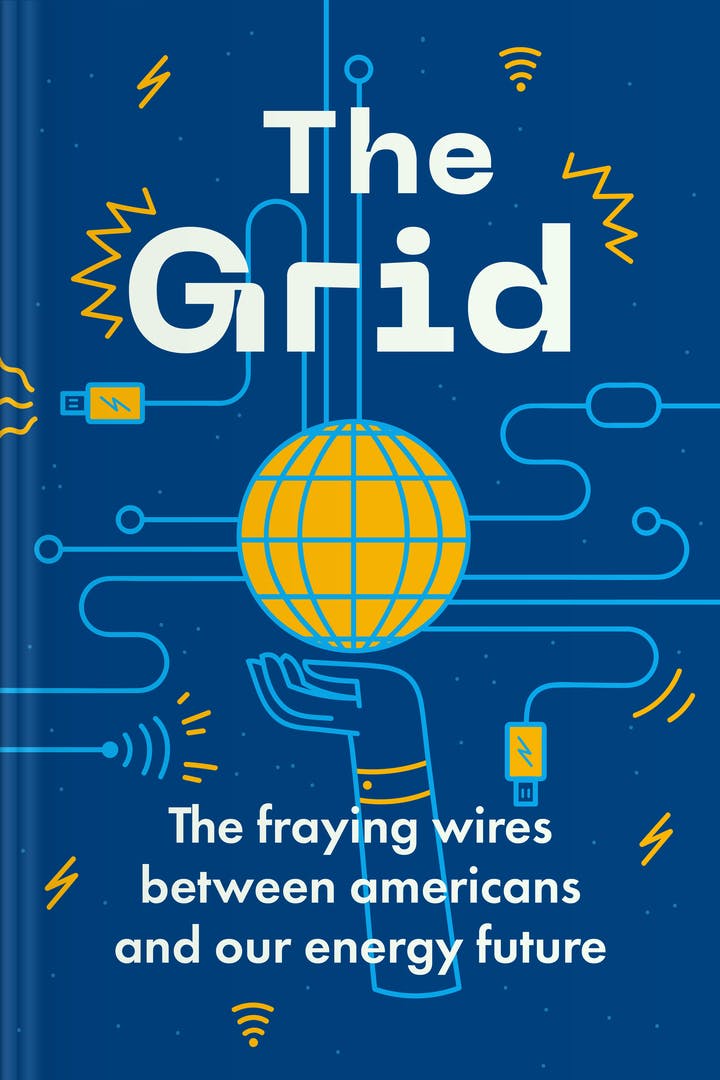 48
48The Grid
by Gretchen Bakke, Ph.D
What is The Grid about?
"The Grid" by Gretchen Bakke, Ph.D. explores the intricate relationship between Americans and our energy future. Bakke delves into the complex world of the electrical grid, examining its history, vulnerabilities, and the challenges it faces in the modern era. With a blend of engaging storytelling and insightful analysis, she highlights the fraying wires that connect us to our energy sources, shedding light on the urgent need for a sustainable and resilient energy infrastructure.
Who should read The Grid
Energy policymakers and industry professionals seeking insights into America's power grid challenges.
Environmentalists and sustainability advocates interested in the future of energy.
General readers curious about the complex relationship between Americans and energy.
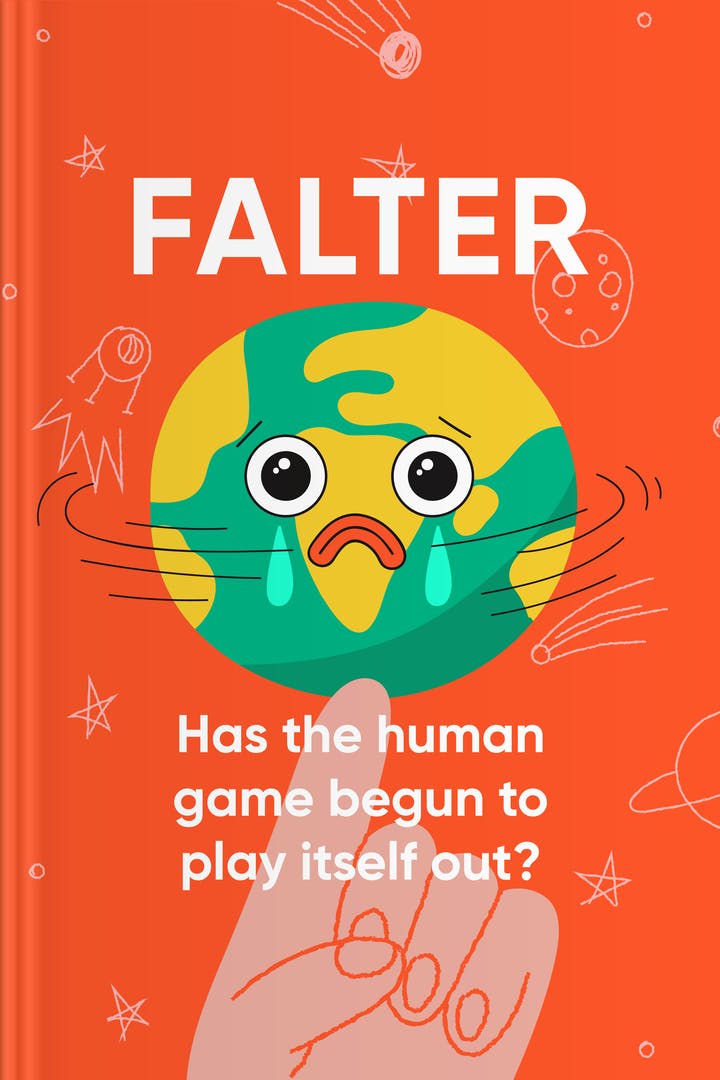 49
49Falter
by Bill McKibben
What is Falter about?
In this thought-provoking book, the author delves into the pressing issues of our time, exploring the threats posed by climate change and technological advancements. Bill McKibben raises crucial questions about the future of humanity, examining the consequences of our actions and the potential for a faltering human game. With a blend of scientific analysis and philosophical reflections, this book serves as a wake-up call, urging readers to consider the urgent need for change in order to secure a sustainable future.
Who should read Falter
Environmentalists and climate change activists seeking a comprehensive analysis.
Policy makers and scientists interested in the future of humanity.
Individuals concerned about the long-term survival of our planet.
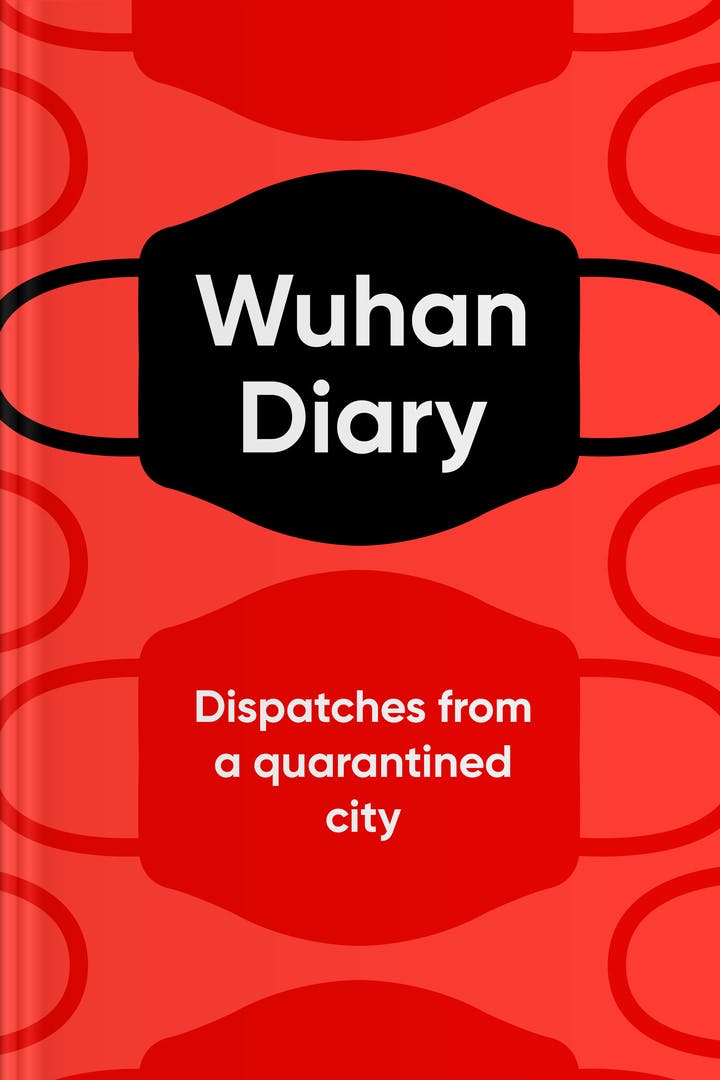 50
50Wuhan Diary
by Fang Fang
What is Wuhan Diary about?
"Wuhan Diary: Dispatches From A Quarantined City" is a poignant and intimate account of life during the COVID-19 lockdown in Wuhan, China. Written by Fang Fang, a renowned Chinese author, this book offers a firsthand perspective on the struggles, fears, and resilience of the city's residents. Through her daily journal entries, Fang Fang captures the emotional and physical toll of the pandemic, providing a powerful testament to the human spirit in times of crisis.
Who should read Wuhan Diary
Individuals interested in firsthand accounts of life during the COVID-19 pandemic in Wuhan.
Journalists and researchers studying the impact of the pandemic in Wuhan.
Readers seeking personal narratives that shed light on resilience and community spirit during challenging times.
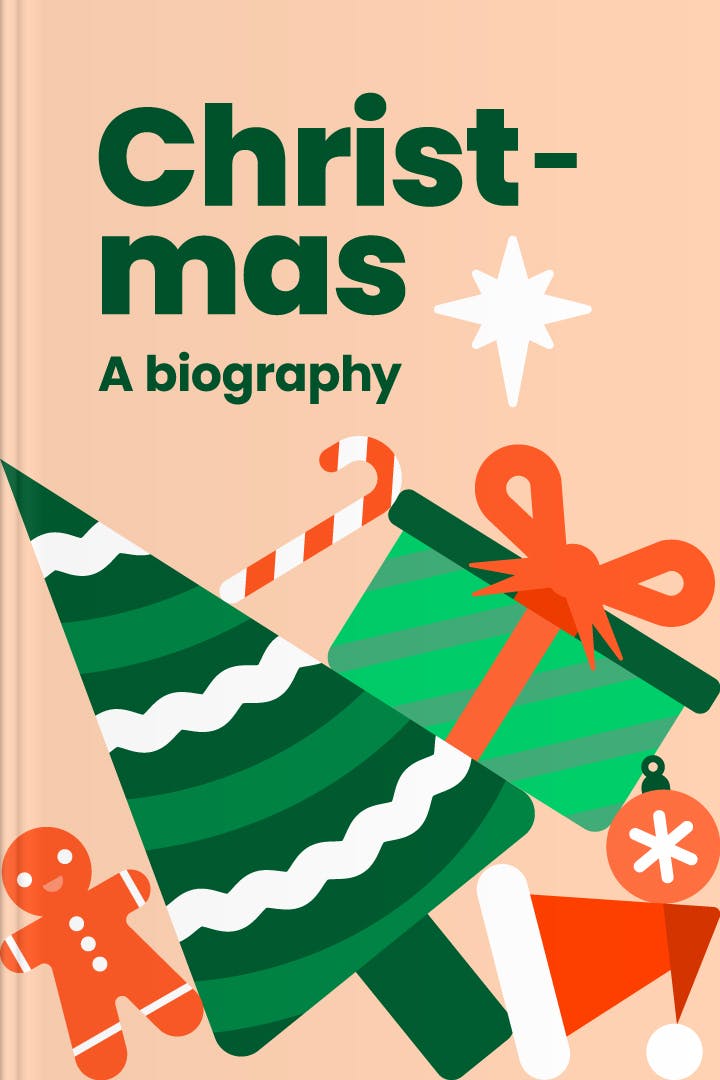 51
51Christmas
by Judith Flanders
What is Christmas about?
In this captivating biography, Judith Flanders delves into the rich history and cultural significance of Christmas. From its humble beginnings as a religious celebration to its transformation into a global phenomenon, Flanders explores the traditions, customs, and controversies surrounding this beloved holiday. With meticulous research and engaging storytelling, she unravels the layers of Christmas, revealing its enduring charm and the profound impact it has had on society throughout the centuries.
Who should read Christmas
History enthusiasts interested in exploring the origins and evolution of Christmas traditions.
Individuals seeking a comprehensive understanding of the cultural significance of Christmas.
Anyone curious about the historical context and social impact of Christmas celebrations.
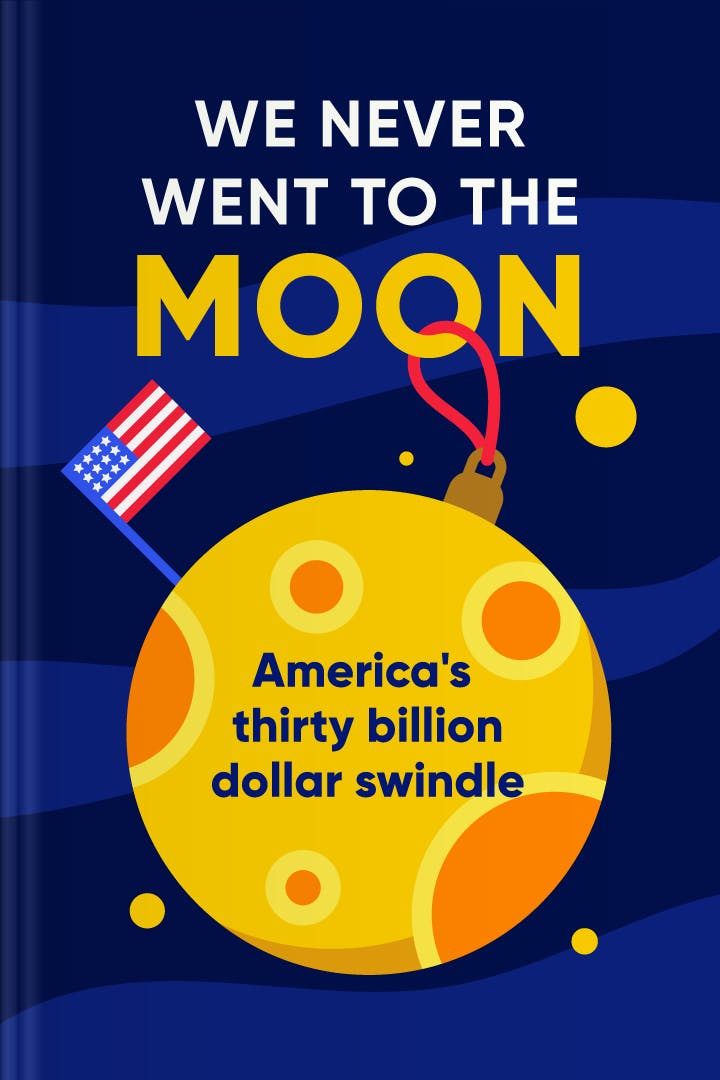 52
52We Never Went to the Moon
by Bill Kaysing
What is We Never Went to the Moon about?
In this thought-provoking book, the author delves into a controversial topic that challenges the widely accepted narrative of the moon landing. With meticulous research and compelling arguments, he presents a compelling case suggesting that the moon landing was an elaborate hoax orchestrated by the American government. Exploring the alleged inconsistencies and providing alternative explanations, "We Never Went to the Moon" invites readers to question the official story and consider the possibility of a massive swindle.
Who should read We Never Went to the Moon
Conspiracy theorists questioning the moon landing should read this book.
Skeptics interested in exploring alternative theories about the moon landing.
History enthusiasts curious about controversial events in American space exploration.
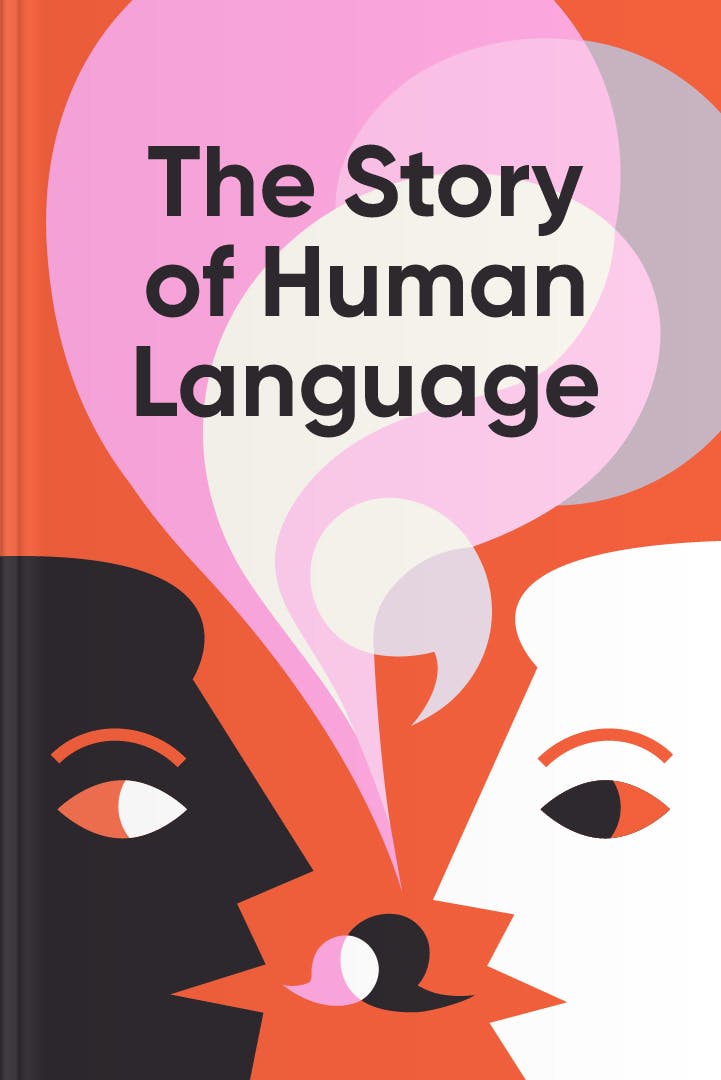 53
53The Story of Human Language
by Dr. John McWhorter, Ph.D.
What is The Story of Human Language about?
In this captivating exploration, a renowned linguist delves into the fascinating evolution of human language. Dr. John McWhorter, Ph.D., takes readers on a journey through time, unraveling the origins, development, and diversity of languages spoken by humans across the globe. With engaging anecdotes and insightful analysis, this book offers a comprehensive understanding of how language shapes our world and reflects the intricacies of human communication.
Who should read The Story of Human Language
Linguistics enthusiasts seeking a comprehensive exploration of human language.
Students studying linguistics or language-related fields looking for a foundational text.
Curious individuals interested in the evolution and diversity of human language.
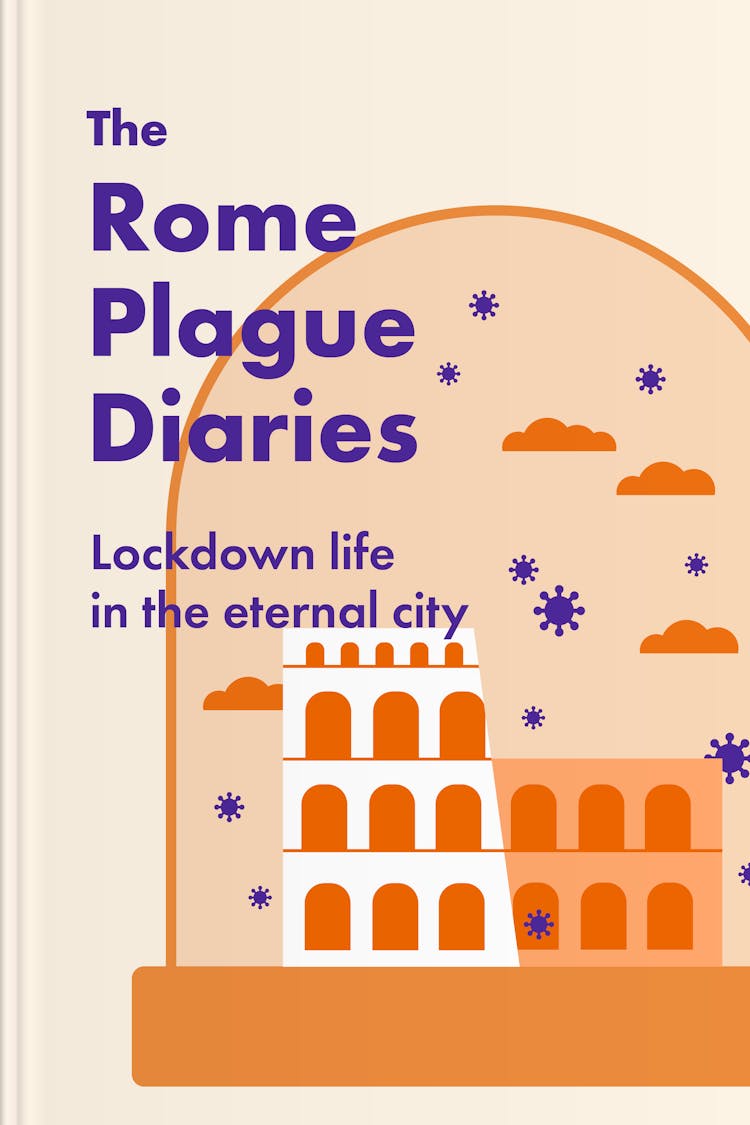 54
54The Rome Plague Diaries
by Matthew Kneale
What is The Rome Plague Diaries about?
"The Rome Plague Diaries: Lockdown Life in The Eternal City" by Matthew Kneale offers a captivating and intimate account of life in Rome during the COVID-19 pandemic. Through personal reflections and vivid descriptions, the author takes readers on a journey through deserted streets, empty piazzas, and the resilience of its inhabitants. This poignant and timely book captures the essence of a city grappling with fear, uncertainty, and the enduring spirit of its people in the face of a global crisis.
Who should read The Rome Plague Diaries
History enthusiasts interested in the impact of pandemics on ancient civilizations.
Travelers planning a trip to Rome and seeking a unique perspective on the city's history.
Individuals curious about personal experiences during the COVID-19 lockdown in Rome.
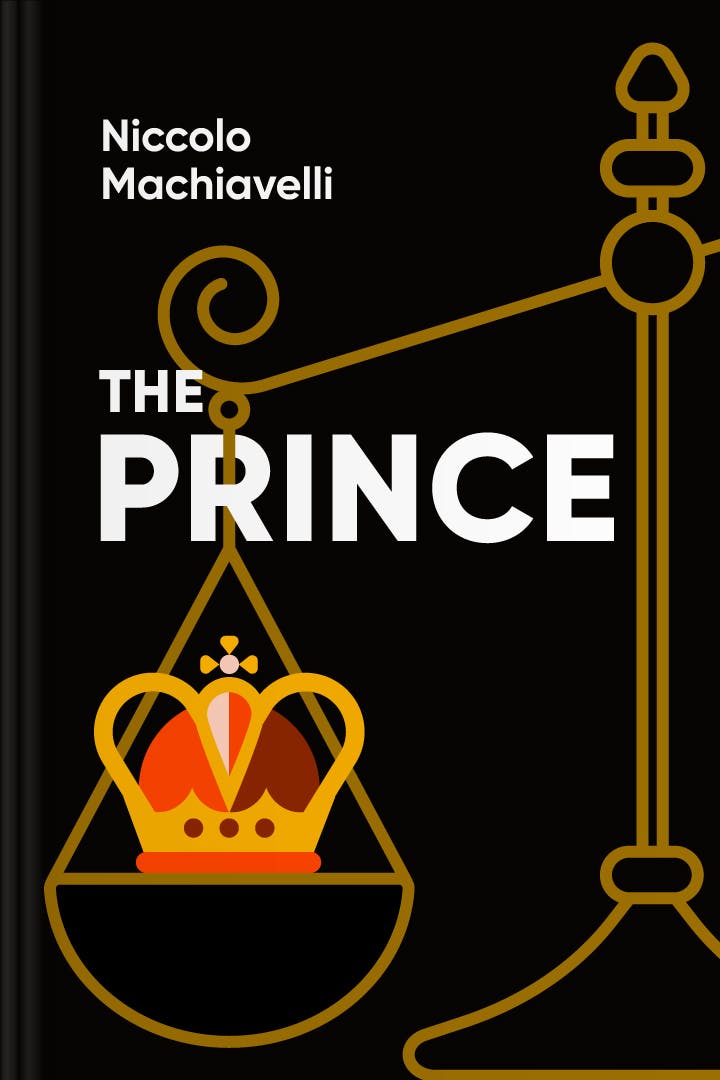 55
55The Prince
by Niccolò Machiavelli
What is The Prince about?
"The Prince" is a political treatise written by an Italian author during the Renaissance period. This influential book explores the nature of power and the strategies rulers should employ to maintain and expand their authority. Drawing from historical examples and Machiavelli's own experiences, it offers practical advice on leadership, diplomacy, and the manipulation of public opinion. Controversial for its ruthless approach, "The Prince" remains a thought-provoking guide to the complexities of governance.
Who should read The Prince
Aspiring politicians seeking insights into the art of leadership.
History enthusiasts interested in Renaissance political philosophy.
Individuals curious about the dark realities of power dynamics.
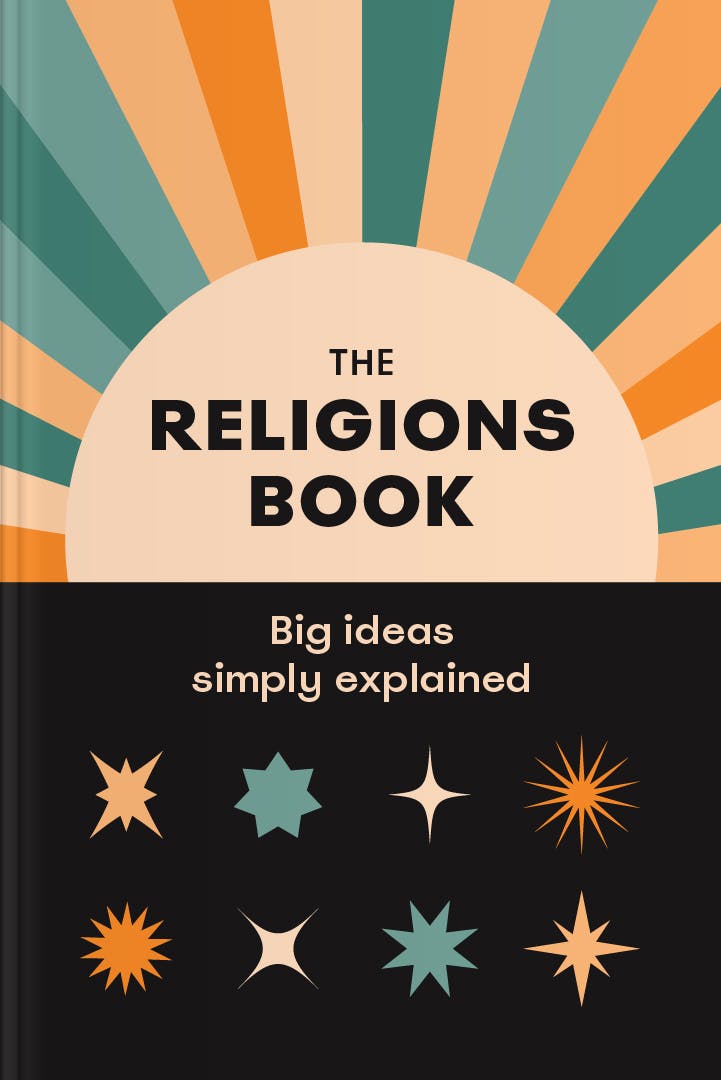 56
56The Religions Book
by Shulamit Ambalu, Michael D. Coogan, Eve Levavi Feinstein, Paul Freedman, Neil Philip, Andrew Stob
What is The Religions Book about?
"The Religions Book: Big Ideas Simply Explained" is a comprehensive guide that explores the major religions of the world, providing a clear and concise overview of their beliefs, practices, and historical significance. Written by a team of experts, this book presents complex religious concepts in an accessible manner, making it an invaluable resource for anyone seeking to understand the diverse and fascinating world of religion.
Who should read The Religions Book
Students studying world religions seeking a comprehensive and accessible guide.
Individuals curious about different religious beliefs and practices.
Readers interested in exploring the historical and cultural impact of religions.
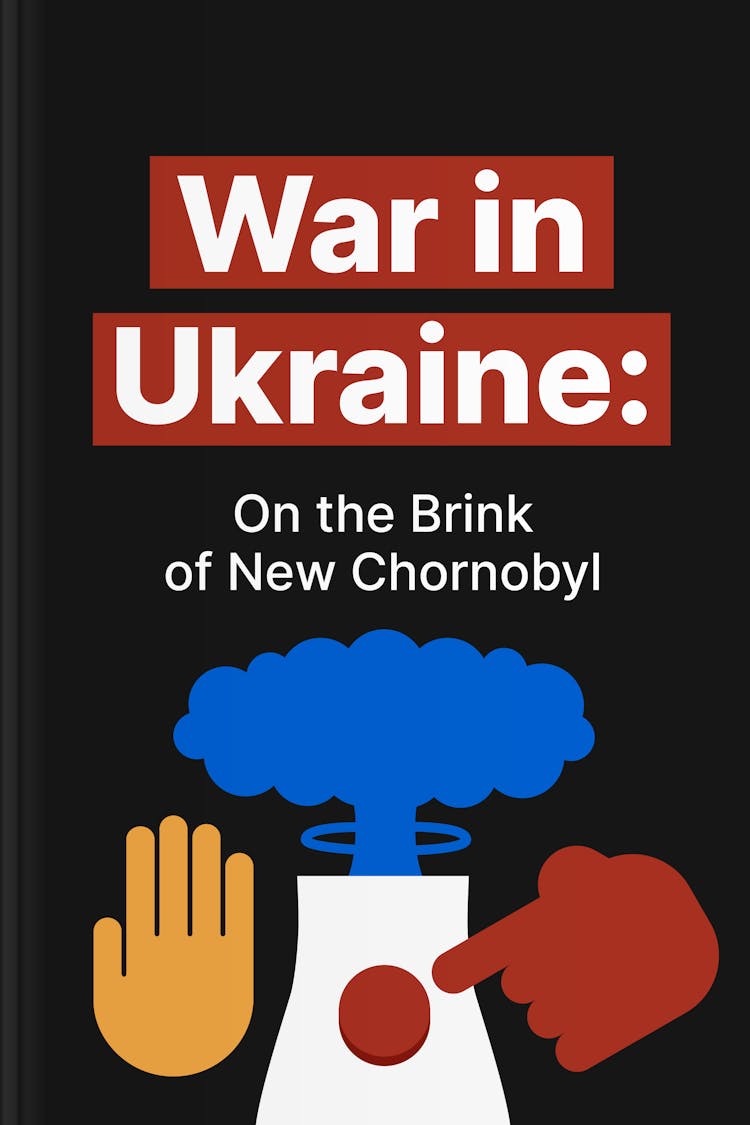 57
57On the Brink of New Chornobyl
by based on articles by Vox, BBC, The New York Times, The Guardian, Vice, Politico, and Radio Liberty
What is On the Brink of New Chornobyl about?
"On the Brink of New Chornobyl" is a gripping compilation of articles by renowned news outlets such as Vox, BBC, The New York Times, The Guardian, Vice, Politico, and Radio Liberty. This book delves into the alarming events and potential disasters that could lead to a new Chornobyl-like catastrophe. With in-depth analysis and expert insights, it sheds light on the pressing issues surrounding nuclear power, environmental risks, and the urgent need for global action.
Who should read On the Brink of New Chornobyl
Environmental activists and policymakers concerned about nuclear energy.
Journalists and researchers interested in the Chernobyl disaster.
General readers seeking a comprehensive understanding of Chernobyl's aftermath.
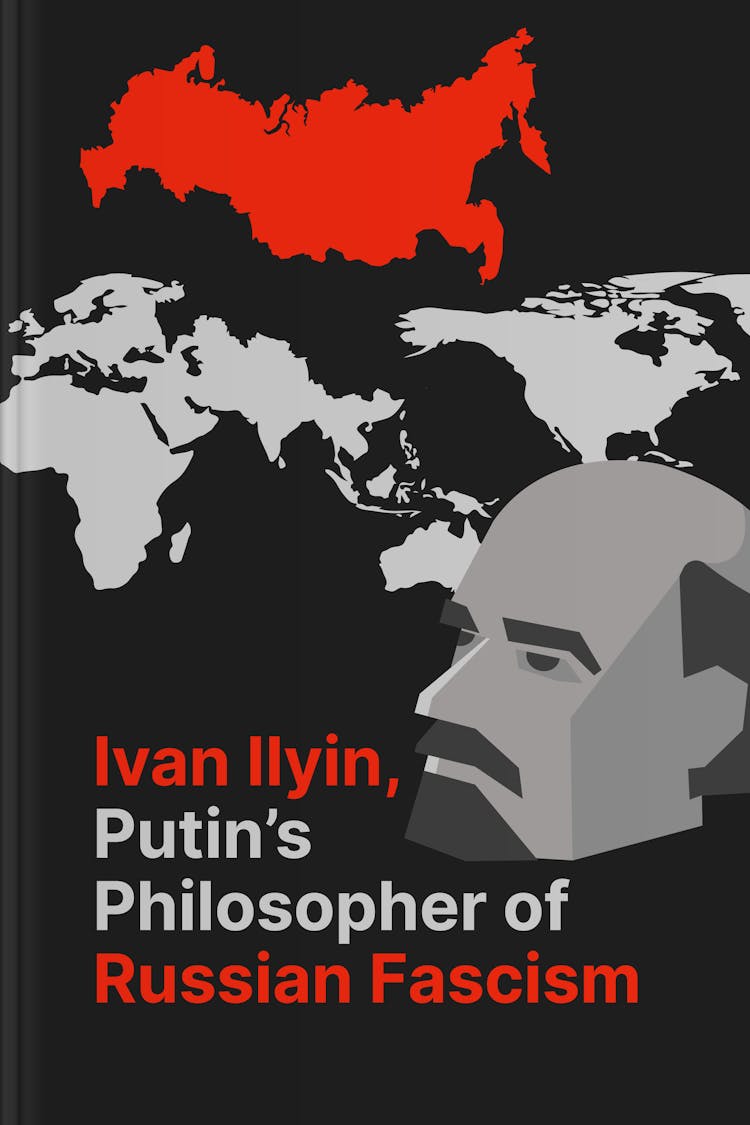 58
58Ivan Ilyin, Putin’s Philosopher of Russian Fascism
by Timothy Snyder
What is Ivan Ilyin, Putin’s Philosopher of Russian Fascism about?
"Ivan Ilyin, Putin’s Philosopher of Russian Fascism" by Timothy Snyder delves into the life and ideology of Ivan Ilyin, a prominent Russian philosopher who greatly influenced Vladimir Putin's political beliefs. Snyder critically examines Ilyin's writings and their impact on Putin's regime, shedding light on the rise of Russian nationalism and the resurgence of authoritarianism in contemporary Russia. This thought-provoking book offers valuable insights into the intellectual underpinnings of Putin's rule and its implications for Russia and the world.
Who should read Ivan Ilyin, Putin’s Philosopher of Russian Fascism
Scholars and researchers interested in understanding the intellectual roots of Putin's regime.
History enthusiasts seeking insights into the influence of Ivan Ilyin on contemporary Russian politics.
Individuals curious about the ideological underpinnings of Russian fascism.
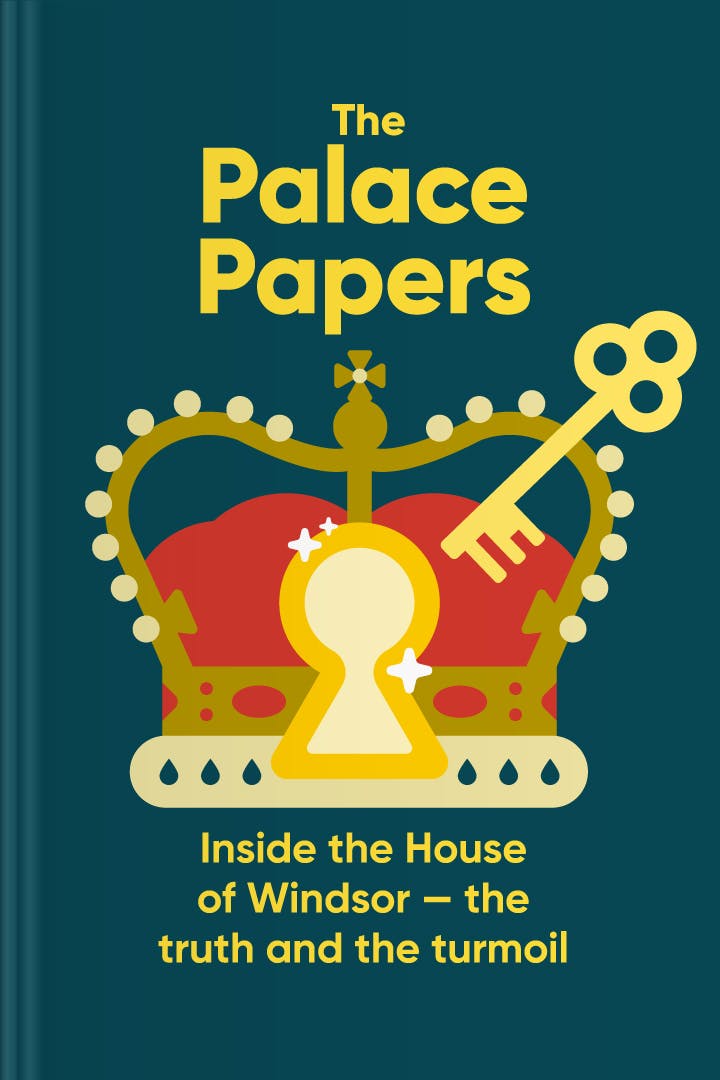 59
59The Palace Papers
by Tina Brown
What is The Palace Papers about?
"The Palace Papers" by Tina Brown offers an intimate and revealing look into the inner workings of the House of Windsor. With meticulous research and insider knowledge, Brown uncovers the truth and turmoil that lies behind the royal facade. From scandals to secrets, this book delves into the complexities of one of the world's most famous families, providing a captivating exploration of power, privilege, and the challenges faced by the British monarchy.
Who should read The Palace Papers
Royal enthusiasts seeking an insider's perspective on the House of Windsor.
History buffs intrigued by the truth and turmoil within the British monarchy.
Those interested in the personal lives and scandals of the royal family.
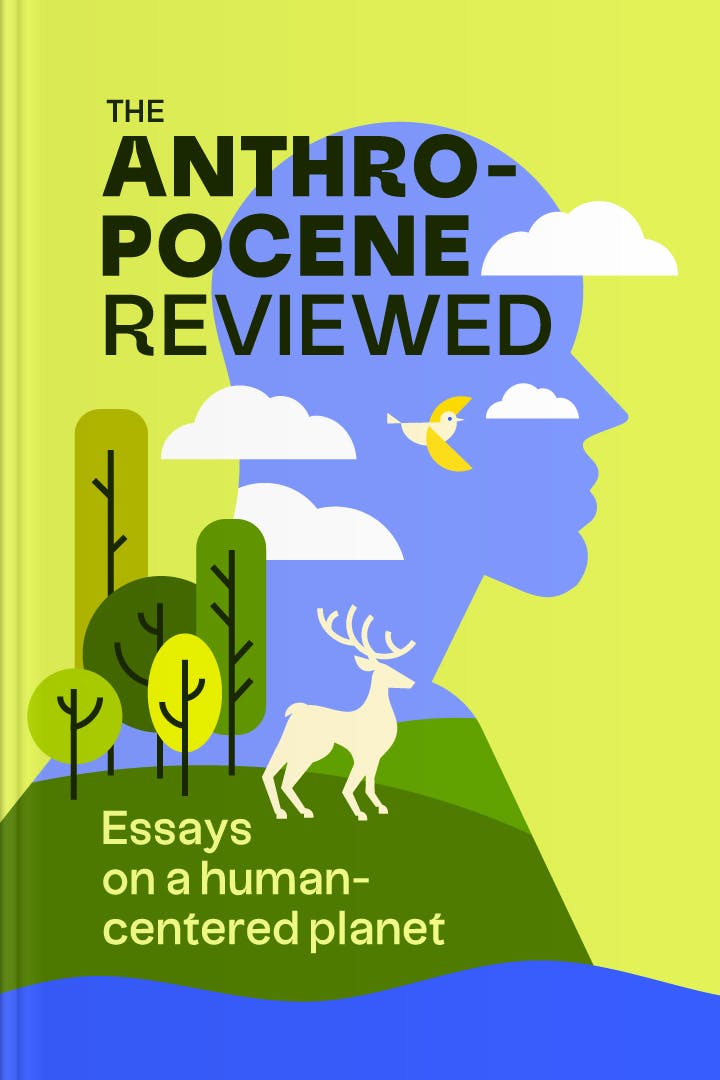 60
60The Anthropocene Reviewed
by John Green
What is The Anthropocene Reviewed about?
"The Anthropocene Reviewed" is a collection of thought-provoking essays by a renowned author. With a focus on the human impact on our planet, the book explores various aspects of our existence, from the mundane to the extraordinary. Through insightful and witty observations, the author delves into topics such as technology, animals, and historical events, offering a unique perspective on the human experience in the Anthropocene era.
Who should read The Anthropocene Reviewed
Fans of John Green's thought-provoking and insightful writing style.
Environmentalists and those interested in the impact of humans on the planet.
Readers seeking a unique blend of personal anecdotes and scientific analysis.
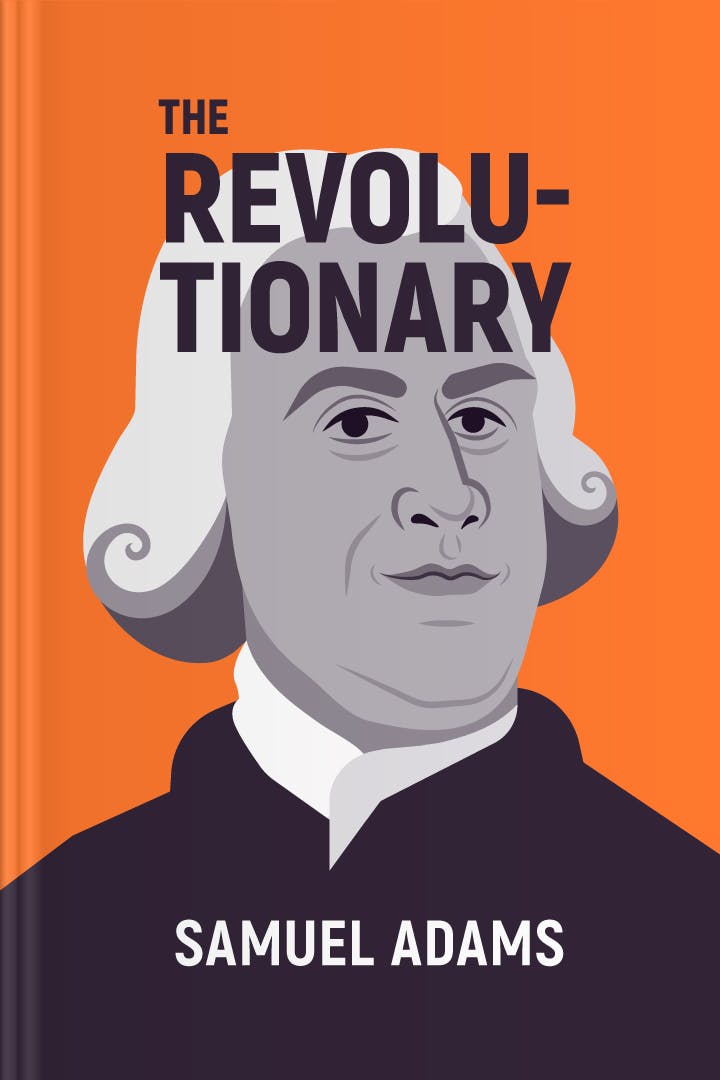 61
61The Revolutionary
by Stacy Schiff
What is The Revolutionary about?
"The Revolutionary: Samuel Adams" by Stacy Schiff is a captivating biography that delves into the life and impact of one of America's founding fathers. Through meticulous research and engaging storytelling, Schiff explores the political career and revolutionary spirit of Samuel Adams, shedding light on his pivotal role in shaping the American Revolution. This insightful book offers a comprehensive portrait of a passionate and influential figure who played a crucial part in the birth of a nation.
Who should read The Revolutionary
History enthusiasts interested in the life and impact of Samuel Adams.
American Revolution buffs seeking a comprehensive biography of Samuel Adams.
Students studying the founding fathers and the American Revolution.
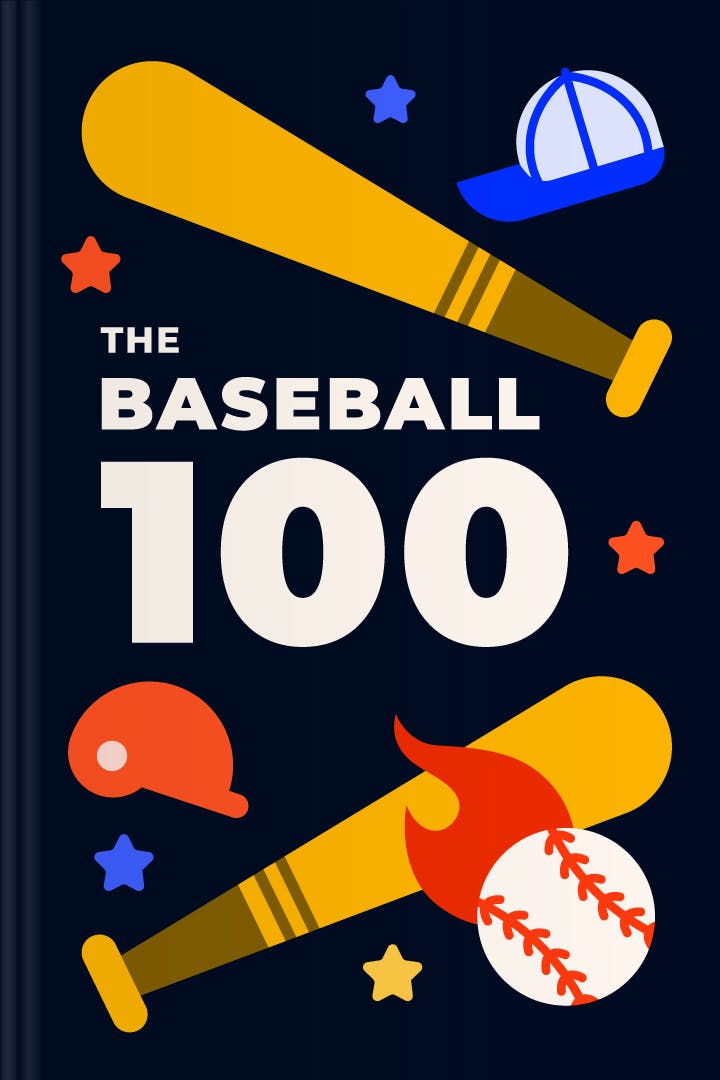 62
62The Baseball 100
by Joe Posnanski
What is The Baseball 100 about?
"The Baseball 100" is a captivating exploration of the greatest players in the history of baseball. Written by acclaimed sports writer Joe Posnanski, this book takes readers on a journey through the sport's rich history, highlighting the exceptional talents and achievements of the top 100 players. With insightful analysis and engaging storytelling, Posnanski delves into the lives and careers of these legendary athletes, offering a comprehensive and entertaining tribute to the game of baseball.
Who should read The Baseball 100
Baseball enthusiasts seeking a comprehensive ranking of the sport's greatest players.
Fans looking to deepen their knowledge of baseball history.
Sports lovers interested in exploring the game's iconic figures.
